4v291o
Watched on Saturday June 7, 2025.
]]>
Guillermo del Toro's Cabinet of Curiosities is a much needed supernatural horror anthology series of eight short films on Netflix with frequent Lovecraftian elements, even (loosely) adapting two of his stories and another two being based on short stories written by del Toro. Suffice it to say, anticipation was high, and I knew he would deliver something with uniqueness and a commitment to the weird and otherworldly with the involvement of quality directors and writers, a much more successful endeavor than Jordan Peele’s Twilight Zone for example. Cabinet… actually resembles The Twilight Zone, and Alfred Hitchcock Presents as well, with Guillermo appearing onscreen and giving a little intro to each episode. The titles sequence that follows is wonderfully gothic and spooky, one of the best I’ve ever seen in any series.
I love the whole idea of this project, and the chosen directors seemed generally qualified; for the most part, Cabinet delivers, though it’s a bit uneven and none of the stories really connect to each other aside from some themes and a few easter eggs. Broadly, I feel like the better episodes could’ve been fleshed out and expanded on by 30 minutes into great feature films, my favorite of them all being The Autopsy by far. There are plenty of flaws to be found too, like unsatisfying endings for a few, with easily the worst episode being The Outside. Cabinet of Curiosities is an enjoyable descent into the fantastical, presenting an inconsistent but overall solid collection of artistically made supernatural/sci-fi horror short films.
The first of the eight episodes, Lot 36, is a curious tale about a bigoted veteran indebted to criminals named Nick (Tim Blake Nelson from O Brother Where Are Thou, Holes, and The Incredible Hulk) working at a derelict storage facility who runs a scheme with a co-worker to cash out on valuables within abandoned units. A number of discoveries find him and another character discovering within lot 36 a secret ageway leading to a chamber with a desiccated corpse of the owner’s sister hosting a Cthulhu-like tentacled demon on the floor in a ritualistic circle. Nick idiotically walks through the magic circle, breaking the spell and unleashing the entity which soon dispatches of him and his companion. Then it just ends.
Lot 36 was intriguing enough, but too much time was spent on Nick and his hostility toward the world. The occult mystery leading to the wonderfully creepy room was far more interesting to me. Despite an element of karma, with a character he earlier wronged locking the exit door right before he’s eaten, the climax is still so brief. There needed to be more to this story including the background of the storage unit beyond just that the recently deceased European occultist owner regularly visited for years with a bag of feed, as Nick discovers on CCTV footage. I loved the spirit of it though and totally eat up that type of mystery onscreen or in literature.
Another story, The Viewing, was a bit stronger with some nice hallucinatory visuals courtesy of the very stylish director Panos Cosmatos, who did the recent Mandy starring Nicolas Cage, and a strong cast which included Robocop’s Peter Weller, but ended basically the same way as Lot 36 did with a strange entity presenting itself, wreaking havoc, and being unleashed onto the world. The second story is another highlight, Graveyard Rats, though also follows a doomed lowlife character in debt to criminals and desperate to make it rich, just like Nick. The strengths of Graveyard Rats however lies in the details, being deliciously macabre and with a number of supernatural flourishes that result in a wickedly fun, nasty watch that doesn’t overstay its welcome.
The final episode based on a story by del Toro, The Murmuring, is a soulful, nearly feature film length ghost story meets domestic drama centered on an ornithologist couple, the husband played by The Walking Dead star Andrew Lincoln, reckoning with grief over their recently deceased daughter at a secluded, haunted country house. It reminded me of Mike Flanagan’s work in a good way. The Murmuring is perhaps a bit sleepy and not exactly super original, but another highlight of the series. The best however is The Autopsy, a gruesome and very clever body horror-alien invasion story starring F. Murray Abraham from Amadeus that might be the best short horror movie I’ve ever seen.
Despite all the enjoyment I had with the aforementioned episodes, the others are pretty flawed. The two H. P. Lovecraft adaptations, which I was excited for as a big Lovecraft fan, are decent and watchable but pretty middle-of-the-road. They’re hardly what you’d call faithful to the original stories either. Dreams in the Witch-House is more of a dark fantasy type of plot that largely foregoes the cosmic elements of the original story and makes it too basic. There’s also an eyebrow raising blackly comedic ending where a mischievous rat-man ends up possessing the protagonist, played by Rupert Grint, which I can’t imagine was meant to be taken seriously at all given that a plot point involving Grint’s character of Ron Weasley in the Harry Potter series involves a villain being found out as having disguised himself as Weasley’s pet rat, Scabbers, in the third book/film Prisoner of Azkaban.
And then Pickman’s Model is pretty dull but worth watching for a wonderfully hammy Crispin Glover performance and a nice demon creature cameo. The creatures and monsters featured in the series were partially or fully designed by del Toro, who nailed it of course. The ending goes too far though; it’s repetitive to have yet another nihilistic and not exactly satisfying ending just like Lot 36, Graveyard Rats, The Outside, and The Viewing sort of. Neither of the two stories feel much like Lovecraft, going into more over-the-top territory and not interested in being too depthful, subtle, or truly scary.
The less said about The Outside the better, a very odd and misguided attempt at social commentary dealing with beauty products that wasn’t scary in the slightest. Maybe the producers thought some variety would be nice, as the other stories are all quite dark and monster/ghost-themed, but despite the change of subject matter fell totally flat. This one is easily skippable I thought, but the other episodes all have something of value to offer one way or another.
Cabinet of Curiosities is mainly a triumph, and more than welcome given how rare Lovecraftian movies are, being notoriously difficult to make work onscreen. Guillermo del Toro pens his name to more solid monster/ghost stories alongside the first season of The Strain, Scary Stories to Tell in the Dark, Antlers, and Mama, not to mention his own films as well, which in my opinion have (generally) been getting better and better these past 10 years or so, with his Pinocchio being my favorite of everything he’s been involved in other than Pan’s Labyrinth. If you’re a horror fan with a strong stomach and don’t mind some camp, I’d happily recommend Cabinet of Curiosities for an entertaining, spooky diversion with its heart in the right place that engages with the imagination. 7/10
The Autopsy>>>>>Graveyard Rats>>>The Viewing>>The Murmuring>Lot 36>Dreams in the Witch-House>Pickman’s Model>>>The Outside
Bring on Season 2. Ideal directors in my opinion are Oz Perkins, Kevin Kölsch / Dennis Widmyer, Michael Dougherty, Karyn Kusama, Richard Kelly, Rose Glass, Nicolas Wending Refn, David Robert Mitchell, Julia Ducournau, and Lukas Feigelfeld.
Delightfully spooky titles: www.youtube.com/watch?v=5ZPTkvB5_q0
First look teaser: www.youtube.com/watch?v=TYotKcx8rw8
Official teaser: www.youtube.com/watch?v=YMUm_Upaqdw
Official trailer: www.youtube.com/watch?v=E3E1URhCR60
Lot 36 trailer (co-written by G Del Toro): youtube.com/watch?v=5OuxUAfrR5c
Crazy ending! www.youtube.com/watch?v=zyvRc2qPMqQ
Trailer for best episode, The Autopsy: www.youtube.com/watch?v=J6QEnsNMkks
The Murmuring trailer (co-written by GDT): www.youtube.com/watch?v=f_HV870Wf98
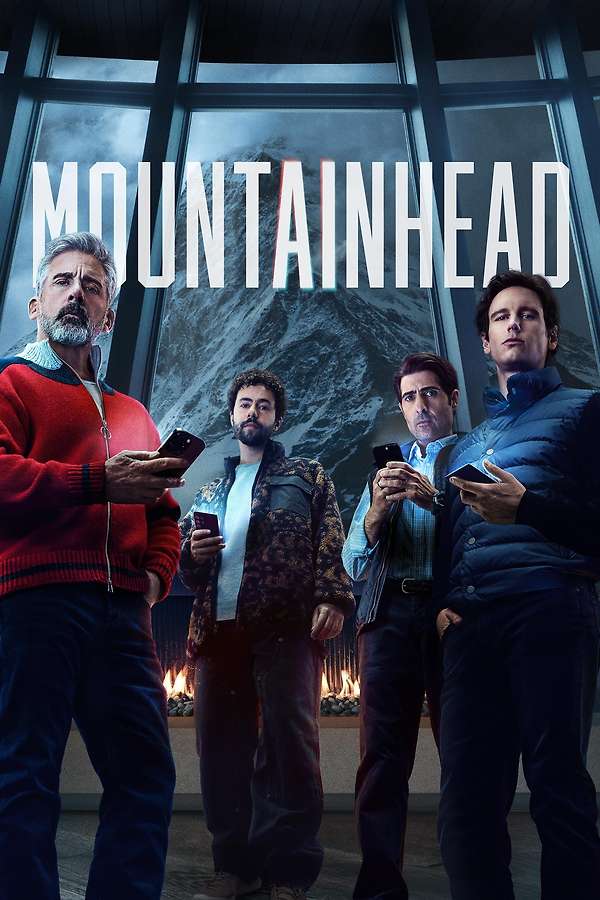
Watched on Saturday May 31, 2025.
]]>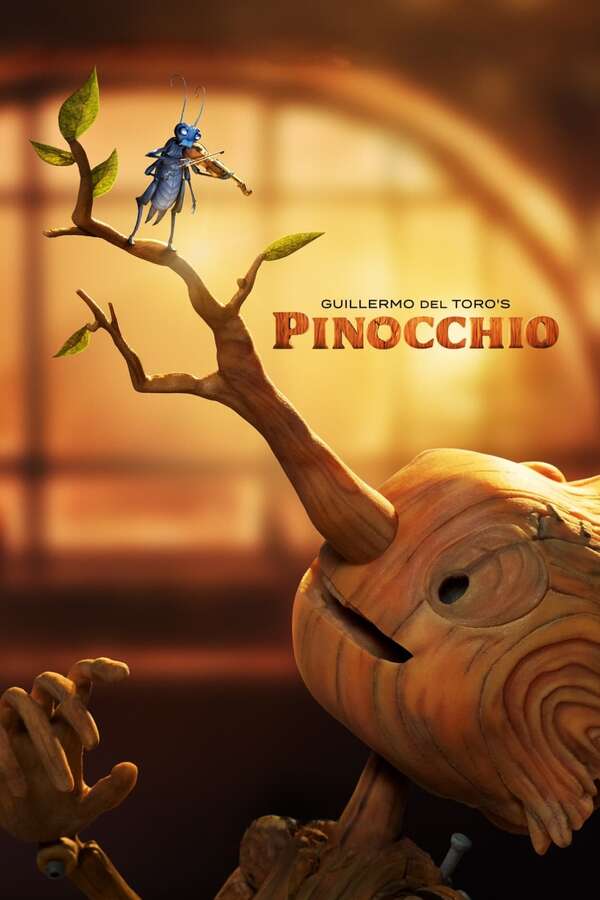
Guillermo del Toro’s Pinocchio is a beautiful, glorious work of art that exudes how special the movies can be when they’re made with true craftsmanship and without cynicism. It’s clear this project was a real labor of love from all involved, and del Toro’s earnest way of storytelling and sense of childlike wonder is on full display. Pinocchio manages to explore themes of mortality and darkness of the world the way classic fairy tales did, and achieves real emotional resonance by the end with where the characters end up.
Some liberties are taken, including taking place in fascist Italy, but everything fits together and showcases del Toro’s known feelings about authority and fascism. Various scenes echo the best moments of Hellboy II and Pan’s Labyrinth, having a real weight to them and balancing the foreboding content with more light-hearted whimsical moments. The voice cast all do a fantastic job, especially Ewan McGregor as Sebastian J. (Jiminy) Cricket. To no surprise, the creature designs, models, and puppets are spell-binding and groundbreaking, making the whole film a real visual feast to take in.
Much as I loved Crimson Peak, Pinocchio has to be my favorite thing Guillermo’s been involved in besides his magnum opus Pan’s Labyrinth. He’s an earnest and versatile auteur, making visually stunning genre films, but this time without his trademark strong violence or grotesque imagery which results in a resplendent dark fairy tale that sort of brings to mind, and lives up to, the better Tim Burton movies. A must-watch for lovers of The Nightmare Before Christmas, Corpse Bride, and Coraline as I am. I found it interesting that 2022 was lowkey the triumphant return of stop-motion animated films for whatever reason. While I loved Marcel the Shell with Shoes on slightly more, Pinocchio was still in my top 5 of 2022 and comes highly recommended.
]]>
Guillermo del Toro beat the odds and amazingly won the Best Picture and Best Director Oscars for his sci-fantasy romance film about a mute woman named Elisa Esposito in Cold War-era Baltimore who falls in love with a captured humanoid fish creature at the scientific lab where she works as a custodian. It was just one of a handful of movies of its kind to win Best Picture, and still full of Del Toro’s quirky, genre-bending sensibilities and impressive tonal shifts. It was great to see him and a genre film so prestigiously recognized when those types and their creators are so often ignored at the Academy Awards. It would ensure that he would have even more creative control and freedom in the future, which was wonderful to see. It went against stiff competition like Dunkirk, Get Out, Lady Bird, and Phantom Thread which all would have been fitting wins as well. The Shape of Water is bursting with beautiful filmmaking, visuals, production design, performances, emotional resonance, and odd details, along with a surprisingly familiar general plot and not fully developed side characters that rides the line between cliché and good old-fashioned throwback storytelling.
Elisa forms a secret relationship with amphibian man and learns of his gentle nature through gesturing, games, and sign language. She of course must eventually bust her new friend out of the lab with the help of her co-worker and roommate so they can be together, and escape the scientists and g-men who want to dissect him. Predicting how it would resolve was not a challenge, as the plot could be described as a mish-mash of numerous classic stories, many for children, like Beauty and the Beast, The Little Mermaid, Frankenstein, Edward Scissorhands, Free Willy, Lilo & Stitch, E.T., and of course Creature From the Black Lagoon with an overall vibe of Jean-Pierre Jeunet, especially his best known film Amélie. Despite taking place in modest Baltimore, the style comes across like a European sci-fi/fantasy art film, especially with a whimsical score that even sounds like the music from Ratatouille at times, which was amusing.
The Shape of Water is confounding at times but with many strengths, mostly in the details and performances. There are rich visuals throughout and the creature design for the amphibian man is outstanding. Sally Hawkins and Doug Jones are both fantastic and emote well without dialogue, a daring move to have both lead characters never talk, but it works and feels unique. The various tones and balance of beauty and strangeness are handled well despite some unintentional comedy. A standout was Michael Shannon as Colonel Richard Strickland, the villain who captured fish man and does whatever it takes to get him back. Shannon is a great actor, and he plays the villain with such menacing intensity it’s almost to the point of ludicrously. It’s nice to see a truly reprehensible bad guy where most movies now don’t seem to put the effort in to have one that you really hate, but it almost seems like he belongs in a different film.
The problems arise from the very straightforward nature of the plot and shallow side characters, which might keep some from really loving The Shape of Water. Guillermo Del Toro apparently once said in an interview that he keeps the plots as simple as possible in his films so he can concentrate on the visuals and world-building, or something along those lines. It’s unfortunate that in the years since release, Jeunet himself and others have made plagiarism accusations against The Shape of Water, which might illustrate more than anything else how derivative so much of it feels despite all the genuinely unique and weird elements. Del Toro’s attention to detail and imagination are indeed fantastic and among his biggest strengths, but while his movies are fully authentic, he can be a sloppy storyteller at times with too many clichés and/or not enough narrative thrust, especially the English-language ones, much like later career Tim Burton. In this case there is a narrative thrust, but it’s too often trite and predictable which saps out some of the excitement. Not completely, especially with all the aforementioned strengths and some random scenes of graphic violence, all involving the colonel, that might jolt some audiences who were getting used to the syrupy romance between Esposito and fish man.
There is indeed a lot to like in The Shape of Water, but some other issues come up involving the themes and ing characters. Despite all the excellent performances, Esposito’s two friends, her closeted homosexual roommate Giles, played by Richard Jenkins, and her co-worker Zelda Delilah Fuller, played by Octavia Spencer, are under-developed to say the least. Their function and personalities are akin to the characters in a children’s film despite being played by great actors. There are scenes of them facing discrimination as well which felt moralizing and preachy. Neither of them particularly change as people by the ending, and their fates are left a bit up in the air.
The whole movie is clearly going for an underdog element of oppressed and downtrodden outsiders banding together to fight the system, but as previously mentioned, it’s no more complex with these themes than a Disney or Dreamworks movie. But the great acting and performing, stunning visuals, and the manner of how Esposito and amphibian man end up at the end is neat and ties it all together, feeling like a fairy tale in the not so distant past. The Shape of Water is certainly an odd film and surprising with how much mainstream praise and recognition it got, but it certainly isn’t undeserving and excels in creating a unique atmosphere and an unconventional but endearing love story, even if not all of it is quite as depthful as it could have been.
]]>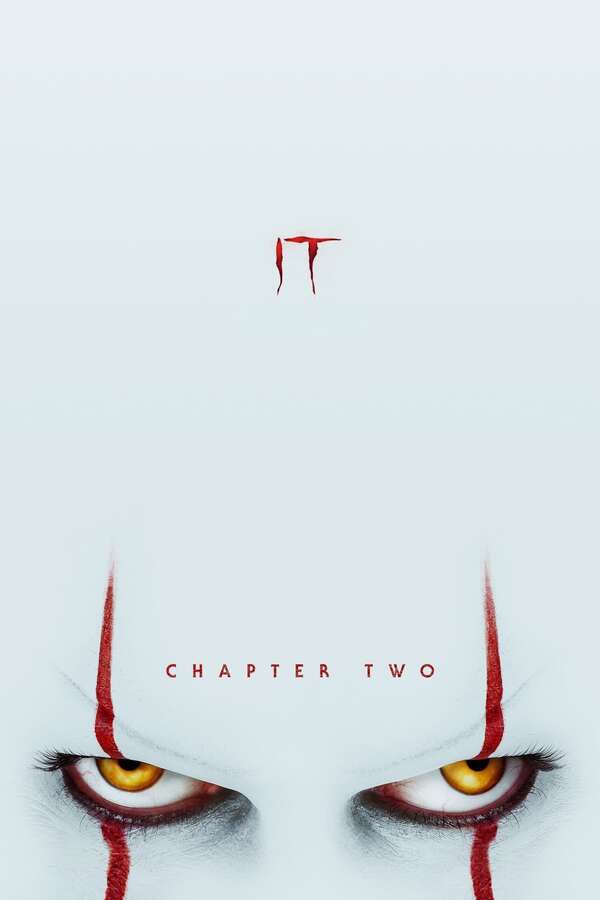
One of Stephen King’s most noteworthy books, the massive It from 1986, is a sprawling tale marrying together a supernatural horror fable with coming-of-age story set in Derry, Maine. The plot switches back and forth between the late 1950s and 1980s 27 years apart, but in this new two-movie adaptation it’s the 1980s and 2016 instead. The group of ragtag characters are united by a shared experience, calling themselves the “Losers Club”, from various encounters with an evil cosmic entity called “It” or Pennywise (made famous by Tim Curry’s amusing performance in the 1990 TV movie) that feeds on fear and consumes humans, especially children which apparently taste the best, in between hibernating every 27 years.
As both timelines progress in a similar way, especially with how they end, it made sense that the book didn’t separate them into two distinct parts the way these movies did. However, It: Chapter 1 succeeded very well in doing so as a focused and highly enjoyable “popcorn horror” movie (emphasis on over-the-top scares accompanied by a loud noise, fake-out frights, and high drama mixed in) that held up due to well done atmosphere, really good acting/chemistry between all the actors including Bill Skarsgard as Pennywise, and genuine emotional resonance with the character development.
As well made and streamlined as Chapter 1 was, this second film undermines it a bit and could make one wonder if the whole story should have been told the way it was in the book. Chapter 2 is nearly three hours long and centers on the Losers Club as adults, but that’s not all it does. Due to Chapter 1’s massive success with audiences and the great chemistry between the kid actors I assume, they shoehorned in flashback scenes to them as kids which doesn’t further the plot and needlessly extended the run time. Perhaps instead it all should have been a 6 or 8 part miniseries on Netflix that switched between the kid and adult actors from beginning to end, the way it was in the book.
Regardless, most of It: Chapter 2 does focus on the adults, who despite all being played by good actors and have some nice moments together don’t get enough time to develop or interact as much as they should. The bloated running time and presence of flashbacks, especially in the middle hour, serves to muddy the narrative. On top of that, the budget for Chapter 2 is almost twice as much as Chapter 1, and the already over-the-top horror elements from its predecessor are amped up even more.
Despite some great moments, too often a scene that’s supposed to be scary comes across like something from a PG creature movie, not dissimilar to Jumanji or The Spiderwick Chronicles. Especially in the mostly toothless third act, Pennywise transforms into a giant spider but for some reason still with the clown head, and as a whole it resembles a less impactful version of the climax in Chapter 1. However, despite these disappointments, I found myself riveted and/or highly entertained by various isolated sequences, such as…
The Chinese restaurant scene where the Losers Club reunites was perfect, gradually descending into comical chaos that felt similar to something from Gremlins 2: The New Batch. The best horrific scenes were genuinely unnerving, such as: the little girl meeting Pennywise under bleachers at a sports game, Beverly Walsh (played by Jessica Chastain) being tricked by It as an old lady in an apartment, and the opening scene depicting It’s return and claiming his first victim in 27 years in a river near a carnival. Much of the rest is a smattering of great bits and then parts that feel off, sometimes scattershot and disconnected, but it all manages to pull together by the end thanks mostly to the strengths of the actors and character development that had been going on across both films. Bill Hader in particular is spot on as Richie Tozier, whose arc is handled just right.
Despite all the strengths present in It 1 and 2, I would be very interested in a studio-edit or even a fan-edit, like the ones that exist for the Hobbit trilogy, that makes the story play out as it did in the book. This would render the climax even more impactful, since the confrontation with Pennywise is thematically the same when they’re kids as when they’re adults. While far from perfect, these two It movies are pretty close to the best way one could adapt this massive book to film form, and both are certainly far superior to the TV movie adaptation. An epic, messy book has gotten an epic, messy 2-film big-screen treatment that mostly succeeds at translating what worked best from the novel into a highly enjoyable, riotous blockbuster horror experience with great performances and some impactful scares.
]]>
Watched on Friday May 30, 2025.
]]>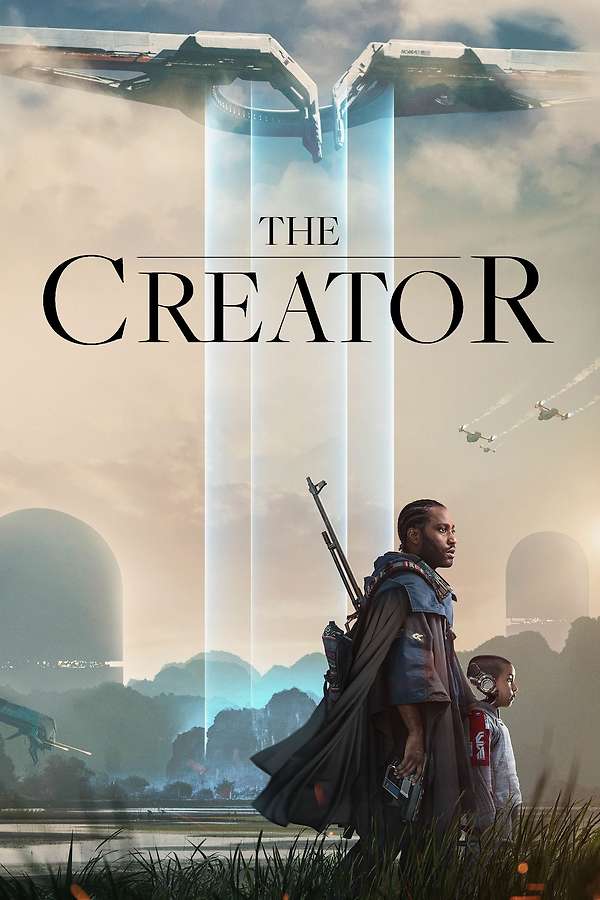
Some stunning cinematography, production design, and world-building can’t compensate for bland characters and a derivative, predictable story. I think Gareth Edwards is a talented filmmaker, but each movie of his is worse than the last. I appreciate the commitment to his artistic vision, but he’s one of those directors like Zack Snyder and Rob Zombie who really needs a good story to work with the imaginative visuals at play.
The plot of The Creator feels derivative of many things, like most James Cameron movies, Star Wars, Blade Runner, District 9, Elysium, I, Robot, A.I.: Artificial Intelligence, and even Edwards' own Rogue One: A Star Wars Story. This even ends in a very similar way, and I’m sympathetic to him for how Rogue One was changed so much by Tony Gilroy, as evidenced by how many scenes in the trailer weren’t even in the final movie.
The Creator comes across to me as another attempt at what Rogue One was going for, but doesn’t quite muster despite the quality visuals and impressive set-pieces. The budget was supposedly less than 1/3 of the new Indiana Jones for example, which is ittedly impressive. 4.5/10
]]>
The black dramady Red Rocket is the fourth film by Sean Baker in the last 10 years, my second favorite after The Florida Project. There’s a laid back quality to how events unfold, and the cast is once again populated by mostly first-time actors, a talent of Baker with how he extracts excellent, believable performances from them. It’s not as emotionally resonant as The Florida Project, but funnier and just as visually gorgeous. I don’t always buy into hyper-realistic, slice-of-life / naturalism kinds of movies, but I think Baker is kind of a modern master of it. He and Chris Bergoch are very good writers and they know how to write engaging stories with plausible characters.
The film follows washed up adult film actor Mikey Saber as he returns to his small hometown in Texas from Los Angeles, worming his way into his estranged wife and mother-in-law’s house. Mikey’s charm and positive attitude gets him back in their good graces, barely that is. He soon tries to hatch a plan to return to Los Angeles with a 17-year-old girl named Strawberry who he meets at the local donut shop.
Events unfold naturally and the characters are unapologetically themselves, with this not feeling like a typical movie from Hollywood at all. Those familiar with Baker’s films are aware how smart of a filmmaker he is, emphasizing realism over melodrama or clichés. I like how he focuses on people at the margins of society and just shows their antics with no judgement, thereby letting the audience draw their own conclusions about them and the subject matter. It’s a sign of mature, empathetic filmmaking without an agenda that should be ed, especially with how mostly safe and conventional movies dominate mainstream attention.
It’s refreshing to see something that’s not afraid to be disquieting or off-putting, letting the audience be smart enough to learn without having the moral or message be so obvious or spoon-fed to them. This level of filmmaking and the fearlessness with letting the protagonist be magnetic and interesting to watch while committing… questionable actions is the kind of thing achieved with movies like The Wolf of Wall Street and most films by the great Paul Thomas Anderson like Boogie Nights, Punch-Drunk Love, and The Master.
Simon Rex’s performance as Mikey is nothing short of excellent, really nailing who this character is and making him come across as charming and likable while being a sleazy huckster who’s only out for himself. Baker impressively knows just the right balance to strike between comedy and melancholic or sad aspects of life the characters deal with, whether sabotaging themselves or dealing with circumstances outside their control. Red Rocket is without a doubt one of the finest films of 2021, especially at a time when good comedies are few and far between, and I just hope it’s not another four years until Baker’s next movie.
]]>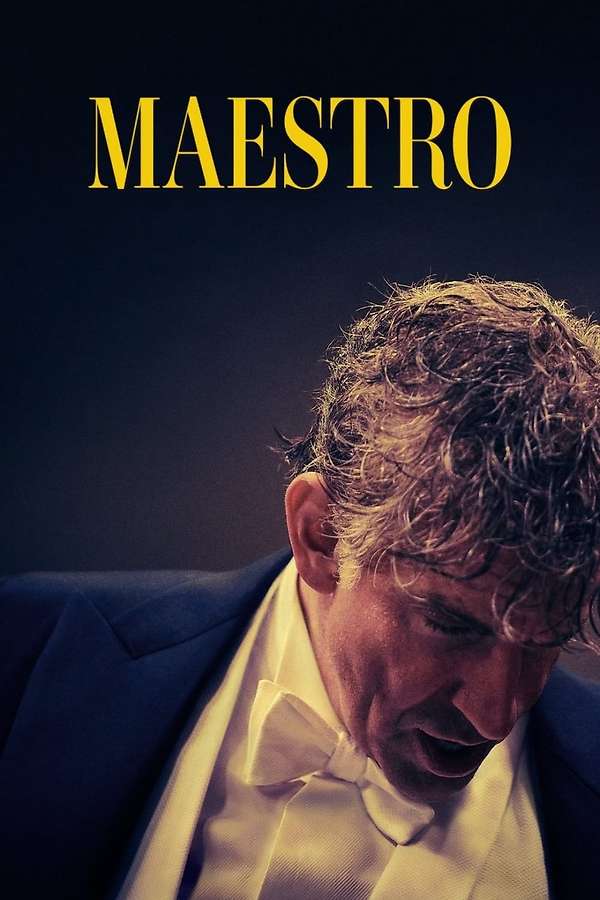
Maestro is the latest prestige drama from Hollywood vying for as many Oscars as humanly possible, complete with black and white sequences to indicate early events. Bradley Cooper wears multiple hats as he stars, directs, and co-wrote the screenplay, just like with A Star is Born co-starring Lady Gaga. Despite being a remake of a remake, his version turned out to be a surprisingly great and very authentic take on the classic Hollywood tale with some genuinely good original songs featured too. This also musically-centered follow-up from Cooper was poised for similar success, but despite all the great filmmaking and acting, Maestro surprisingly is bereft of any real momentum or an actual plot.
Scenes and events of Leonard Bernstein's life drift by with whole decades missing, and I know there’s only so much that can be covered in a 2-hour biopic, but I take some issue with what they chose to focus on and how little of his actual musical life is even featured. Repetitive scenes with no narrative momentum go on and on of Bernstein with various other characters that exist almost exclusively to highlight him or Carey Mulligan’s acting. All the other characters, maybe other then the eldest daughter played by Maya Hawke, are left with virtually no development or impact on much of anything. The performances are great of course, but I feel it may have crossed the line into self-indulgence.
After Maestro ended, I felt I had learned little about Bernstein other than what a bit of a rascal he could be, and wondering what the point of any of that was. The only thematic idea I could glean from the film was showing how his larger-than-life personality and general extroversion along with fame from his impressive musical career overtook the people around him and challenged his marriage in various ways, but the love they had was able to overcome it. I can’t help but how brilliantly and subtilely a similar dynamic was explored in the great Phantom Thread.
Ultimately, Maestro is a very well made film in numerous ways and a pretty breezy watch actually, well until the sad third act, that doesn’t really add up to much more than what other handsome if flat Oscar bait movies did, like Belfast, The Fabelmans, West Side Story, or Trial of the Chicago Seven. Cooper’s laser focused look-at-me-and-toss-me-an-oscar-or-five commitment to the material is commendable, as is Mulligan’s work too, and the cinematography is pretty consistently wondrous. Perhaps others with more knowledge of Bernstein’s life will find more substance than I did, but the surface-level overview of his life and lack of a real plot make for a decent if not great tribute to the well known conductor and composer who had such an impact on spreading classical music far and wide while balancing his family life the best he could. In that sense, Maestro succeeds well enough due to its obvious merits and dedication from the filmmakers.
]]>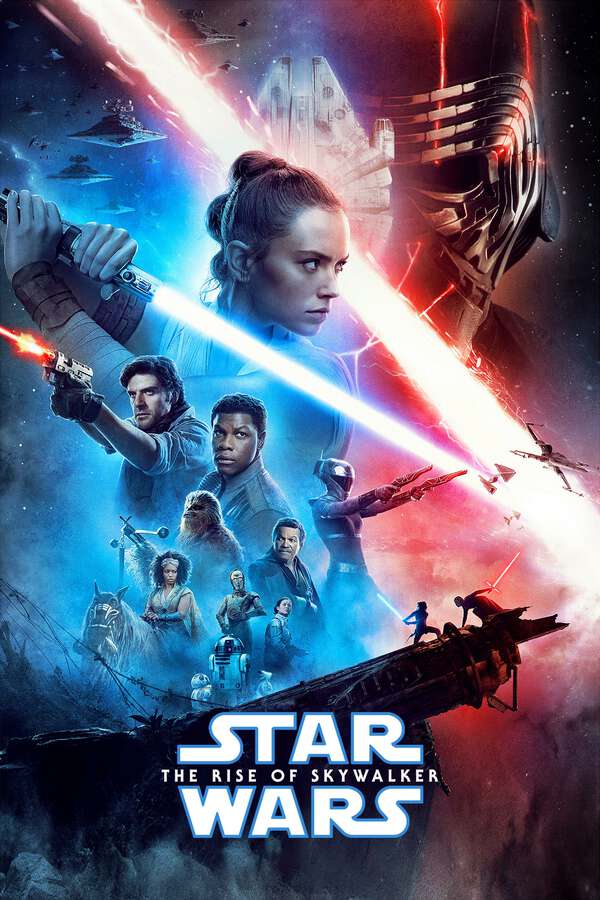
This new Disney Star Wars trilogy started out with promise, but The Rise of Skywalker shows that the overarching story was not planned out and now collapses into a heap of meaninglessness. While this isn’t all terrible, compared to the previous films it’s a significant disappointment. I had to watch the movie twice just to make sure I had it right, but this really was a colossal screw-up despite a few good scenes and settings, mostly the ones with Adam Driver’s Kylo Ren, like: him and Rey communicating on his ship where Vader’s mask shatters, his confrontation with her on the death star ruins, and the subsequent dream sequence where Han Solo talks to him. Driver is a great actor and his conflicted portrayal of Ren has been such a highlight of this trilogy, having carried these movies. There are plenty of other talented actors involved too, but many of them were wasted.
Aside from those aforementioned scenes, Rise of Skywalker is filled with baffling and nonsensical choices, moving along at a chaotically fast pace. The Force Awakens and The Last Jedi had their problems, but were generally well made and enjoyable sci-fi action movies with some drama that felt like they were about something, while this is a train wreck that just wants to move along as quickly as possible without letting any scenes breathe or allow the audience to think or process any of what’s happening. Location after location blurs by as our heroes just go around to some planets looking for a MacGuffin (plot device) that will lead them to another MacGuffin that will lead them to the recently resurrected Palpatine and his new fleet of Star Destroyers on a new planet, Exegol, for a big battle at the end. Some of these planets are interesting, but we barely spend any time on them before the characters have to go somewhere else. This whole movie is wheels spinning and comes across like it was written by a 6-year-old. Why couldn’t they have hired literally anyone else but the hack Chris Terrio, who co-wrote two of the worst and most derided movies of all time, Batman v. Superman and Justice League, to co-write this final Star Wars movie?? It’s such a shame and waste of so much money and effort. Unfortunately, The Rise of Skywalker is tied with The Phantom Menace for the worst movie in the entire saga, also being the only two with mostly negative critical scores.
The Rise of Skywalker feels like it came out of nowhere and a dramatic drop in quality from the more mature The Last Jedi. It’s full of ridiculous plot conveniences/details like a magical dagger when from a distance, the edge lines up with the ruins of the death star (what??) to lead to another clue, ignoring the themes and character development of the other movies like Rose Tico, a headache-inducing breakneck pace, Rey being a Palpatine somehow, new Force powers like healing serious wounds which has never been done before, and pointless side characters who do basically nothing, like Jannah, Zorii Bliss, and Beaumont Kin, some of whom are played by established actors like Keri Russell, Richard E. Grant, and Dominic Monaghan in thankless roles. It made absolutely no sense why he was back after being vaporized in The Return of the Jedi, but at least Emperor Palpatine was fun.
I’ve been a fan of most movies directed and/or produced by J.J. Abrams, but this one echoes his other poor effort Star Trek: Into Darkness. Interestingly, both films have a lot of the same flaws by having a shallow and nonsensical plot moving at a breakneck pace to hope that the viewer doesn’t think too much about what is transpiring, and just splash some good visuals and action scenes on the screen. I expect that many people are involved when Disney makes a Star Wars movie, and I can’t help but think that everyone other than the actors and below the line workers really dropped the ball here. There hasn’t been a Star Wars movie since, at least partially because of this I’d imagine. The main problem with how this trilogy turned out was that no one was in charge of planning the story from the beginning to the end like a George Lucas. He may have screwed up the prequels, but being a story consultant or something instead of just shut out might have been a better plan. The lack of seemingly any coherent plan might not have seemingly affected The Force Awakens as its own movie, but it sure made for trouble here and in a good amount of The Last Jedi as well.
The Rise of Skywalker is an unfortunate reminder that this whole mythology doesn’t make sense beyond the original trilogy, and a good case for only considering that and maybe the first two seasons of The Mandalorian as real Star Wars. There was no excuse for mes the post-Return of the Jedi Star Wars storyline this bad, for one thing not even having one scene with Luke, Leia, and Han Solo together. I think the powers at be, as in Disney, will be in real trouble going forward as a result with future films and streaming series. The main lesson they should learn is that these epic trilogies and series need to be well planned out ahead of time by smart people. If they learn that lesson for whenever the next trilogy is made, it might be on the road to being redeemed.
]]>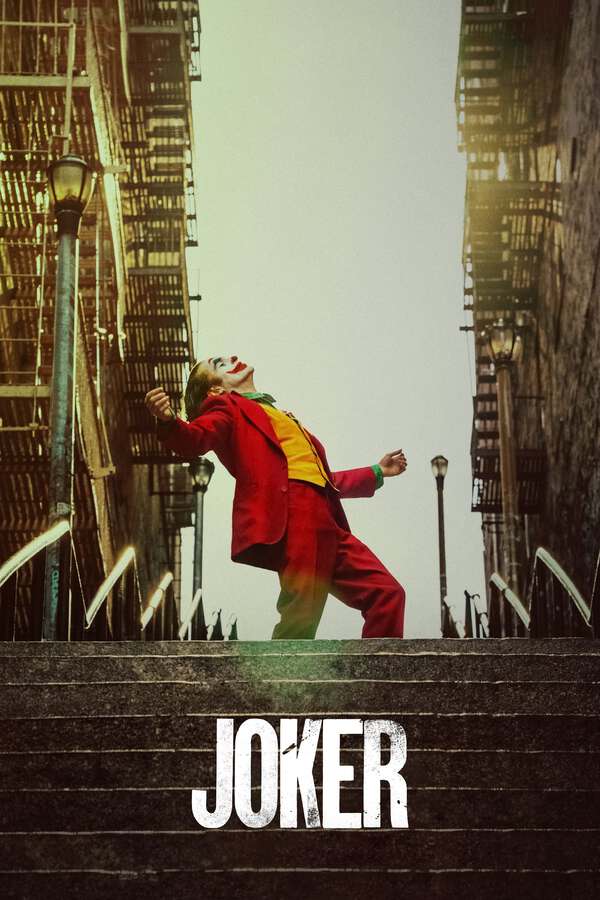
What a genius move it was to make a dark, well acted, character driven psychological thriller and Trojan horse it into theaters with the superhero movie connection by making it a stand-alone Joker origin story. While the beginning is a bit contrived in showing how down on his luck Arthur Fleck is on the way to being joker, the movie becomes brilliant as it goes along by commenting on the importance of mental healthcare and how a very troubled individual can easily break and be a danger to society, but in this case indirectly harnessing people's frustrations at the corrupt elites of Gotham City to become an unintentional icon of anarchy as he does by the end. Joker is interestingly the anti-Batman origin story, the other side of that coin.
Joker recalls the best modern(ish) psychological thrillers like Fight Club, Nightcrawler, and American Psycho with its incisive indictment of modern society and invoking that rousing feeling in the viewer to wake up, snap out of your everyday life, and think for yourself. Themes that have been done before and may seem obvious at first, but conveyed in an intimate manner through the eyes of a true psychopath in waiting. Like the aforementioned films, Joker will be especially impactful for empaths and disappointed idealists. It’s ironic that the movie’s pre-release controversy was about fears of it emboldening right-wing gun nuts and possibly causing city riots or something, when the entire movie ends up being about how crucial healthcare and competent city governance is!
Joaquin Phoenix gives one of the best performances of his career (which is saying something) and elevates the already solid screenplay with his brilliant acting. Certainly not in line with modern superhero movies, more akin to a classic Martin Scorsese crime film than a big budget Hollywood blockbuster, Joker is something special and Phoenix provides another brilliant performance as the iconic villain after Jack Nicholson and of course Heath Ledger.
]]>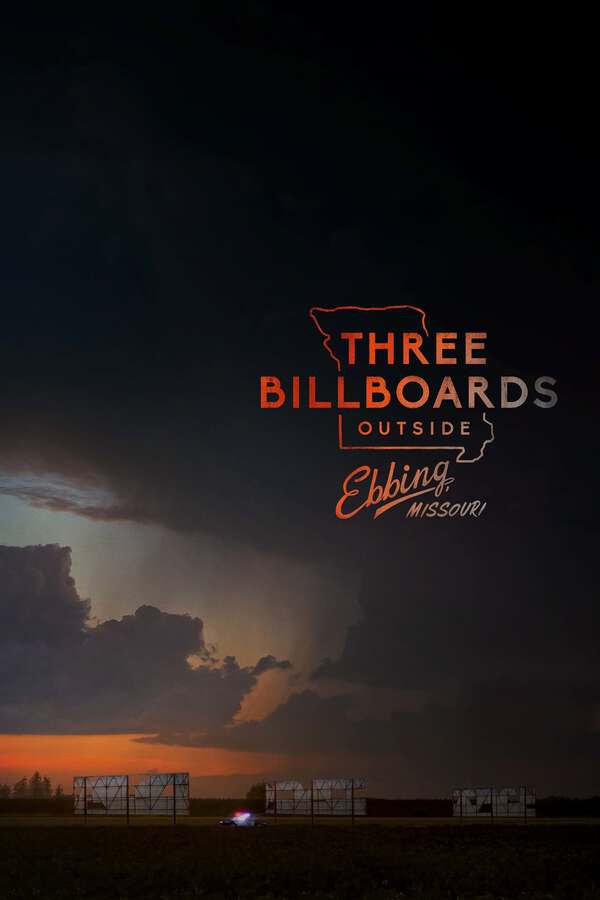
I’m guessing someone has made this joke already, but it’s just so applicable!
Me: “Mom, can we go see the new Coen Brothers movie?”
Mom: “No, we have Coen Bros. movies at home!”
*Coen Bros. movie at home*: Three Billboards Outside Ebbing, Missouri
]]>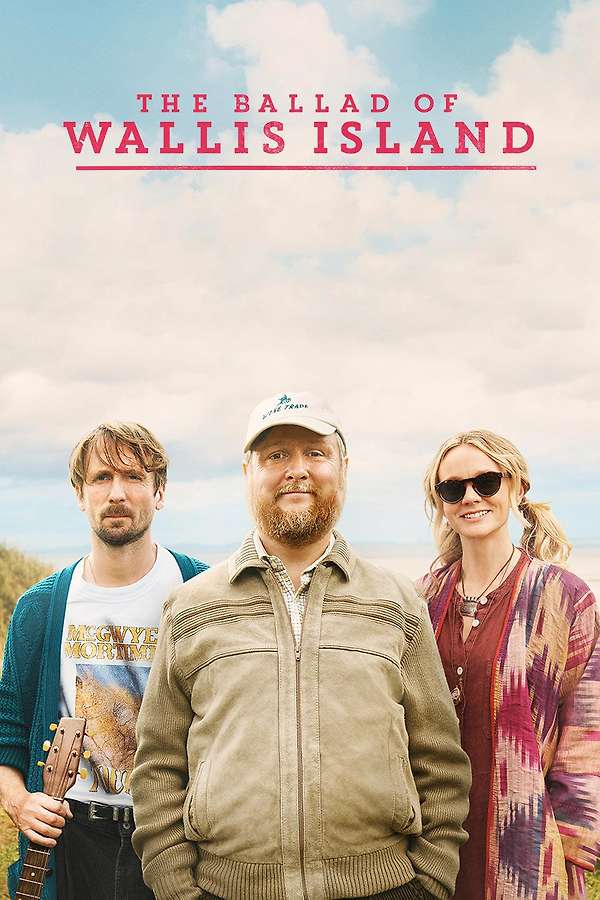
Watched on Sunday May 25, 2025.
]]>
Watched on Friday May 23, 2025.
]]>
Watched on Saturday May 24, 2025.
]]>
Watched on Thursday May 22, 2025.
]]>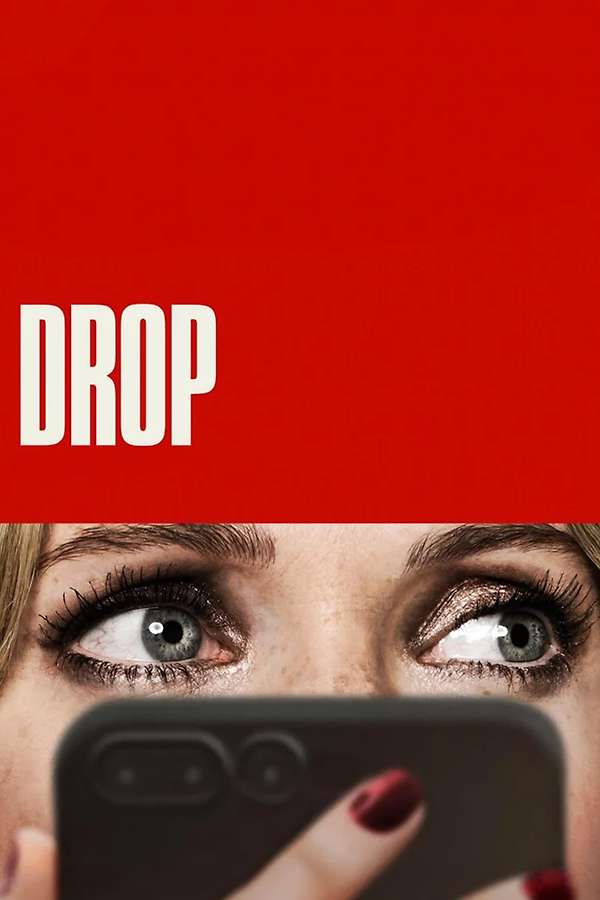
Watched on Wednesday May 21, 2025.
]]>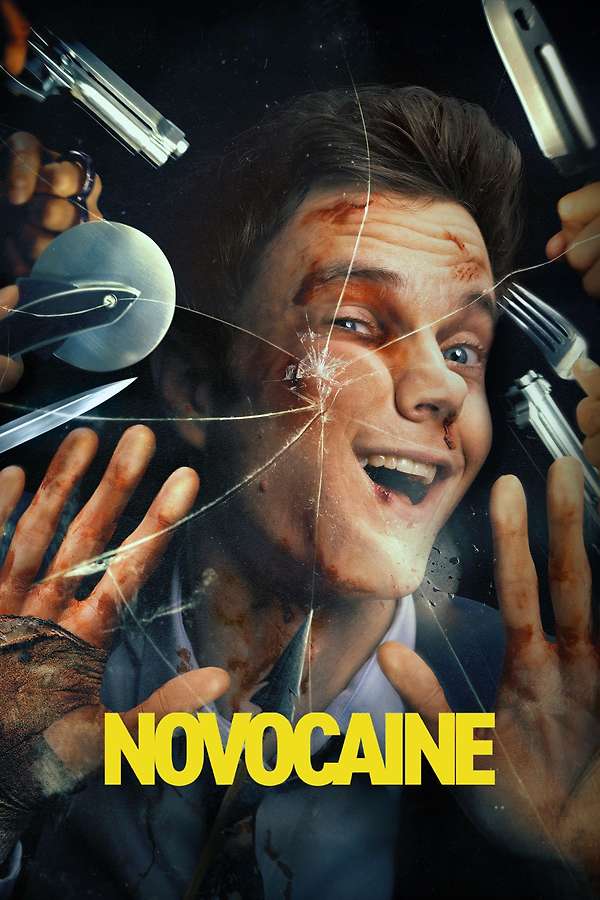
Watched on Tuesday May 20, 2025.
]]>
Watched on Saturday May 17, 2025.
]]>
Watched on Thursday May 15, 2025.
]]>
Watched on Wednesday May 14, 2025.
]]>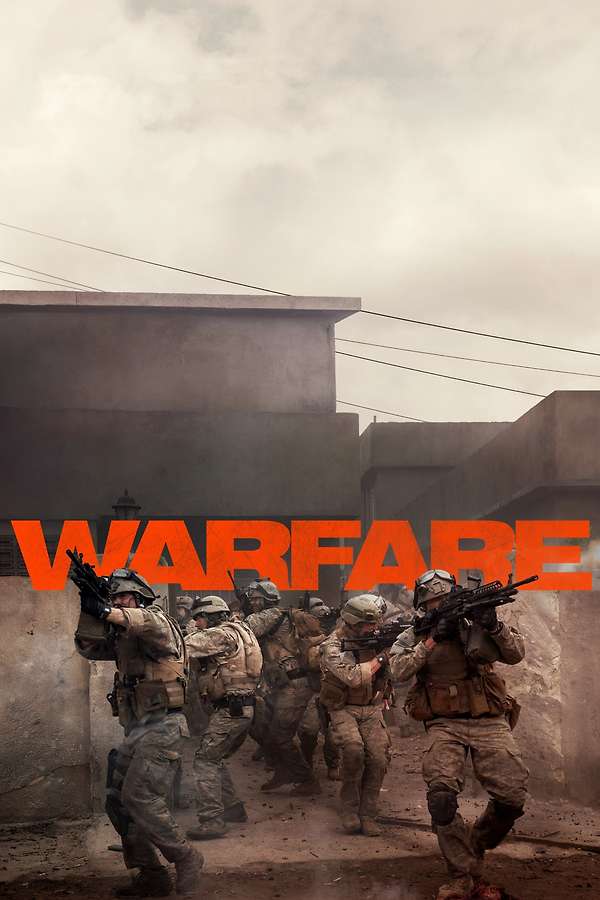
Watched on Tuesday May 6, 2025.
]]>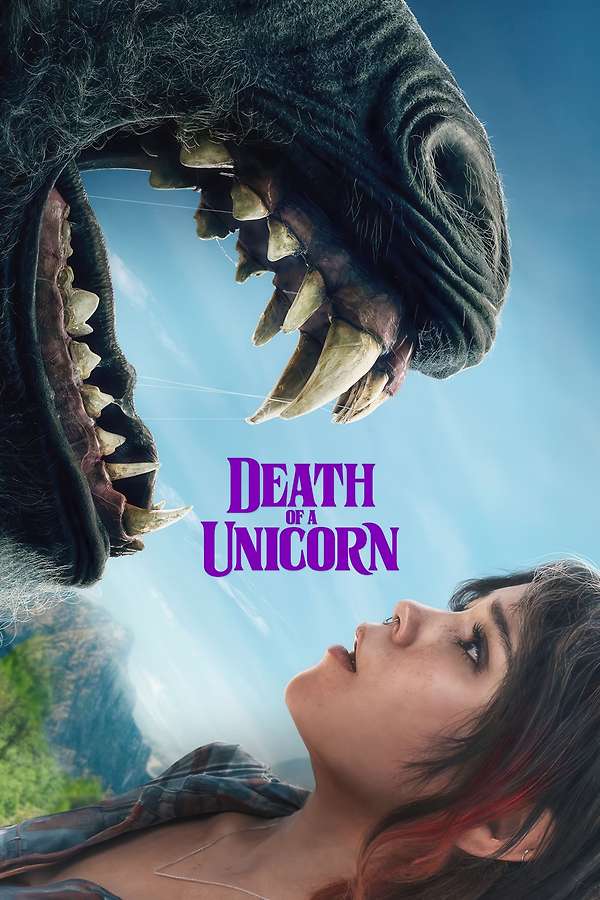
Watched on Wednesday April 30, 2025.
]]>
Watched on Saturday April 26, 2025.
]]>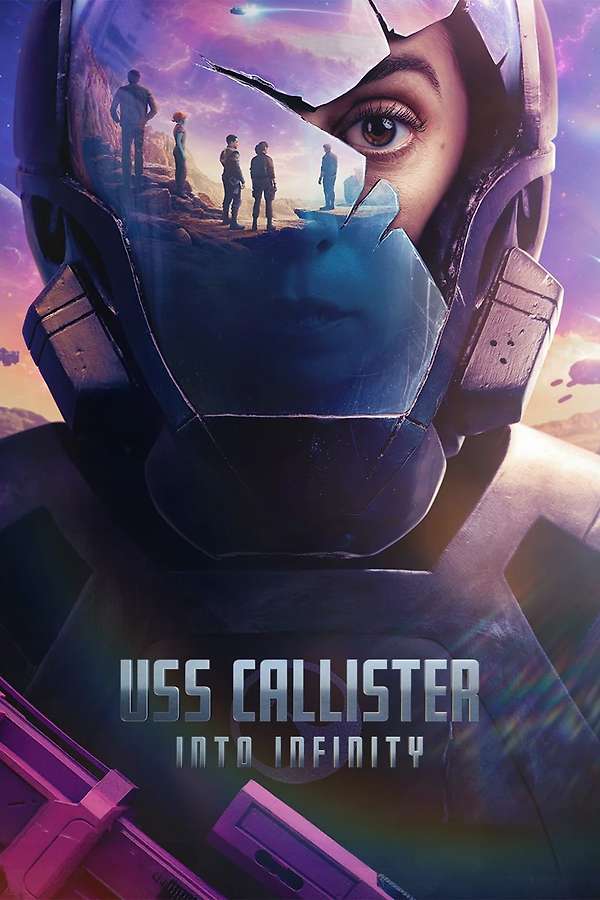
Watched on Tuesday April 15, 2025.
]]>
Watched on Monday April 14, 2025.
]]>
Watched on Sunday April 13, 2025.
]]>
Watched on Saturday April 12, 2025.
]]>
Watched on Friday April 11, 2025.
]]>
Watched on Thursday April 10, 2025.
]]>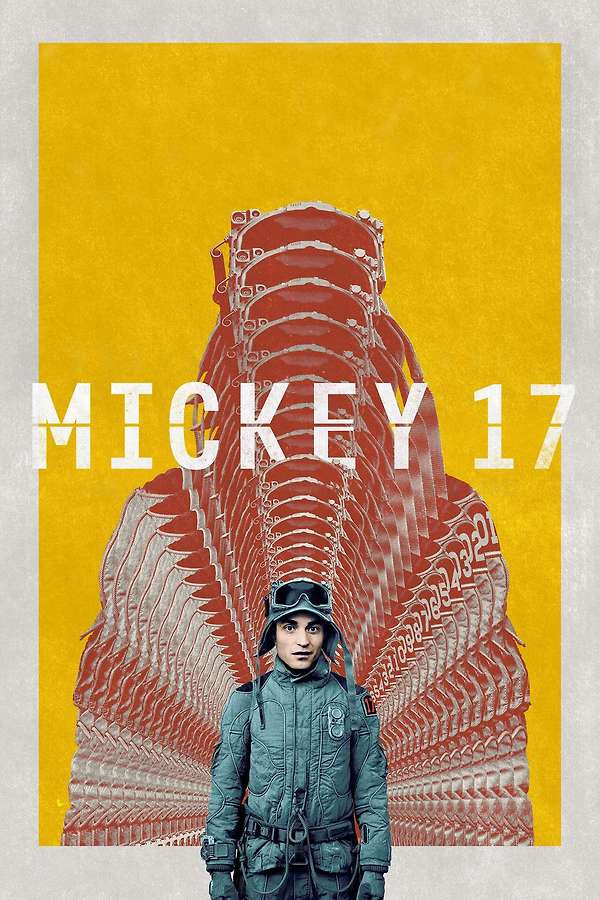
Annoying and pointless satirical sci-fi that reminds one of better films and just leaves the viewer in exhaustion. The tone was all over the place and just ended up in muck. The characters were hardly developed and the make-up of the world wasn’t well defined, despite much time spent on exposition and backstory. Astonishing how much of a failure this was with so many creative elements and talent in front of and behind the camera. The cinematography, visuals, and production design were excellent, but what was it all for? Stay far away.
]]>
The much-anticipated new Evil Dead film finally arrived a full 10 years after the surprisingly decent remake starring Jane Levy as final survivor Mia Allen. Trying to kick drugs in the abandoned cabin with some bland friends, she was able to barely escape with her life and defeat the main Deadite. Mia wandered off to leave the cursed land, forever changed by her encounter with true evil and having overcome her withdrawal. It would have been nice to see where she goes next after an open-ended conclusion like that, right? But Rise features a new setting and different characters, basically another reboot with the unfortunate absence or even acknowledgement of Mia, whose fate remains unknown.
For the first time, an Evil Dead story doesn’t take place in a cabin in the woods but a condemned, rundown Los Angeles apartment building. However, most of the characters have curious traces of Australian accents and also features some shrubbery that I don’t think grows anywhere in the United States…. But anyway, while the prospect of a new setting for Evil Dead shenanigans seems like a fresh idea, the demons being summoned to invade this drab building doesn’t succeed as well as it might’ve seemed on paper. It could’ve worked better if it was a sleek, clean, modern apartment complex for contrast instead of the typical creepy atmosphere of flickering lights, dingy areas, and collapsing structures that many horror movies utilize. But on the positive, it does provide some neat horror sequences that would be otherwise not possible in the tried and true cabin in the forest setting.
A resident, single mother and tattoo artist Ellie, gets possessed after her kids discover one of the books of the Necronomicon or something in the basement parking area after an earthquake unearths it. Her son innocently reads aloud the book’s contents and Ellie is soon possessed and serves as the main antagonist and highlight of the film. The actress fully commits to embodying the essence of a scheming, unrelenting Deadite gleefully chasing her poor children, visiting sister, and neighbors through the general area with various found weapons and nasty taunts. Despite these positives and some very creative sequences, effects, and camera perspectives, including one which takes place through the view of a door peephole, the first half is kind of a slog. The typical setup of how the Deadites are conjured is essentially the same as always; an unassuming character find one of the cursed books, curiously opens it, and innocently reads the contents, thereby opening the supernatural door for the demons to come through. Cue the unhinged freak show of carnage and gore that everyone paid to see.
Director Lee Cronin turns out to be a solid fit for the franchise, despite his debut feature being a wholly different affair: the atmospheric, slow-paced, gothic horror film The Hole in the Ground. While he brings a fresh visual flair to this latest Evil Dead, the unimaginative script is limiting. These characters are hardly any more interesting than the mostly bland cast of Evil Dead, and a misguided and ultimately pointless wraparound story involving the infamous cabin with unrelated characters who all end up dead anyway that just shows the curse spreading from the apartment building back to its original setting? I think? In any case, it’s pointless and diminishes the overall experience. There are also a lack of surreal sequences that were present in the original trilogy, such as when Ash put his hand through a mirror and it’s made of water, or the lightbulb filling with blood to really show his sanity breaking and the extent of the Deadites’ powers. There are one or two comedy antics like in the original trilogy, which don’t fit and stick out when the rest of the movie is so grim and menacing.
With the announcement that the producers are considering making Evil Dead a consistent franchise, releasing a new movie every few years, this doesn’t really make a strong case for the idea. Despite delivering on the characteristic gnarliness and featuring excellent directing with some truly impressive sequences on a technical level, Evil Dead Rise at the same time feels too stuck in its ways to stand out or sur previous entries in the franchise. If there is a follow-up, it should reinvent the wheel beyond just changing up the main setting and actually incorporate some bizarre qualities and more humor in the spirit of the Sam Raimi trilogy and recent series. Putting more effort into character development would be nice too. Evil Dead Rise may not succeed on all levels, especially regarding the plot, but is still impressive with (some) inventive horror antics and just barely manages to live up to the mighty Evil Dead mythology. If they do make a follow-up, it should star Mia, Ash, and Beth teaming up and kick things up a notch!
]]>![]()
The new Avatar of all things actually affected me more than I expected, and dare I say it’s James Cameron’s best movie in 30 years. There’s a welcome restraint regarding the dizzying and nonsensical action sequences that are characteristic of many modern blockbusters. The whole middle hour there was almost nothing of the sort. Even some half-hearted attempts at characterization happen, mainly regarding Sully’s kids and how they adjust to their new oceanic home after escaping danger in their forest.
The story is very standard and the runtime is far too long, with the movie becoming a slog by the time the extended third act climax comes around. But Avatar: The Way of Water managed to provide a lot of goodwill in the form of all the stunning aquatic visuals and imagery that is honestly the selling point of this sequel, much of which is shown in that comparatively laid back middle hour. The use of effects really are impressive in both films, and taken to new heights this time.
As both a big science fiction fan and someone who loves the sea and practically feels a kind of spiritual connection to it sometimes, despite some of the terrifying creatures found in the deep, James Cameron’s self-indulgent but technologically brilliant depiction of Pandora and all the sea life was beautiful and immersive in a kind of sci-fi nature documentary way. It brought me back to the kind of awe I felt snorkeling at the Great Barrier Reef and other places on the Australian coast. I still don’t really understand the whole Avatar phenomenon, but both movies are well designed and very engrossing experiences without a doubt.
]]>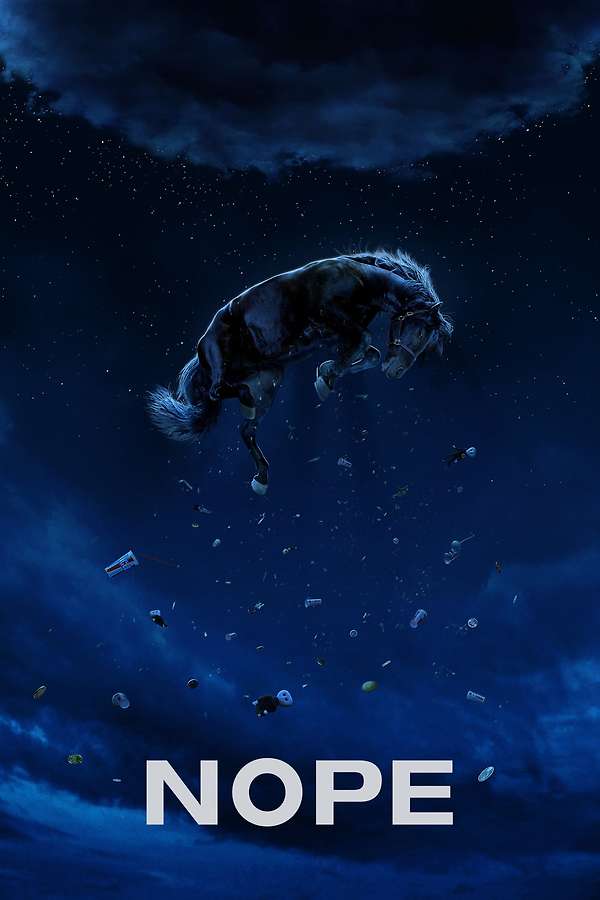
When a genuinely thrilling and original alien invasion blockbuster that isn’t stupid comes out, it’s something to celebrate. Jordan Peele brings his trademark penchant for excellent suspense-building and great cinematography to his approach at a Spielbergien blockbuster meets a Twilight Zone episode in a decidedly lighter but no less strange third film, “Nope.” The curt title signifies a sly, somewhat self-aware attitude injected into the plot and a less thematic, thought-provoking mission as well. Peele comes across like he wants to make a more simple and straightforward thrilling experience for his third feature, though not without a healthy abundance of odd details/Easter eggs for attentive viewers.
Nope begins with the only black family owned horse ranch for Hollywood productions where one day the patriarch, Otis Hayward Sr., dies from mysterious falling debris. His son OJ (Daniel Kaluuya) wants to keep the family’s legacy alive while dealing with his precocious, less sentimental younger sister Em (Keke Palmer), who wants to sell the ranch and cash in. They soon discover the presence of a UFO in the area that’s been devouring the horses and ejecting nonorganic materials, which caused the senior Hayward’s demise.
The bulk of Nope centers on OJ and Em’s attempts to document and eventually confront the UFO, gradually learning more about the nature of it and enlisting the help of an eager geek squad type guy who installed their security cameras, and embraces the idea of capturing the flying saucer and becoming famous as a result. There are some themes of humanity exploiting the spectacular for capitalist purposes and paying the price, a la King Kong and Jurassic Park, and other things that could be read into as well like themes of surveillance and the nature of filmmaking itself.
While all this is well and good, and there’s an impressively original and truly “alien” design for the reveal of what the entity is which I loved, there are some issues with Nope that keep it from being quite as layered and fantastic as Get Out or Us. For one thing, the characters are not exactly what you’d call compelling, and the script is a bit muddled in places. There’s this whole side plot that keeps developing in these flashbacks of an incident in 1998 where a young child star named Jupe witnesses a chimpanzee attack at a taping of a sitcom he was in, and now as an adult (Steven Yeun, who’s almost wasted in a role that’s smaller than was d) who despite clearly still traumatized by the incident, is opening a carnival near the ranch based on his experience and then meets with OJ and Em. At first it seems like the chimpanzee attack from his childhood could be related to this UFO, as staring at a shoe standing up in an impossible way is what saves Jupe from being attacked since he didn’t look the chimp in the eye, but there doesn’t end up being anything to indicate a relation to the UFO beyond it being open to interpretation.
Nope isn’t the tightest or most thought-provoking thing Peele has made, but it doesn’t have to be after Get Out and Us. The film is a well crafted, highly entertaining and strange journey full of surprises, which is something worth ing in this age of endless sequels, reboots, and remakes. Who would have thought a sketch comedy writer and performer would end up being so talented at crafting genuinely unnerving and wildly original bonkers thriller and horror films.
]]>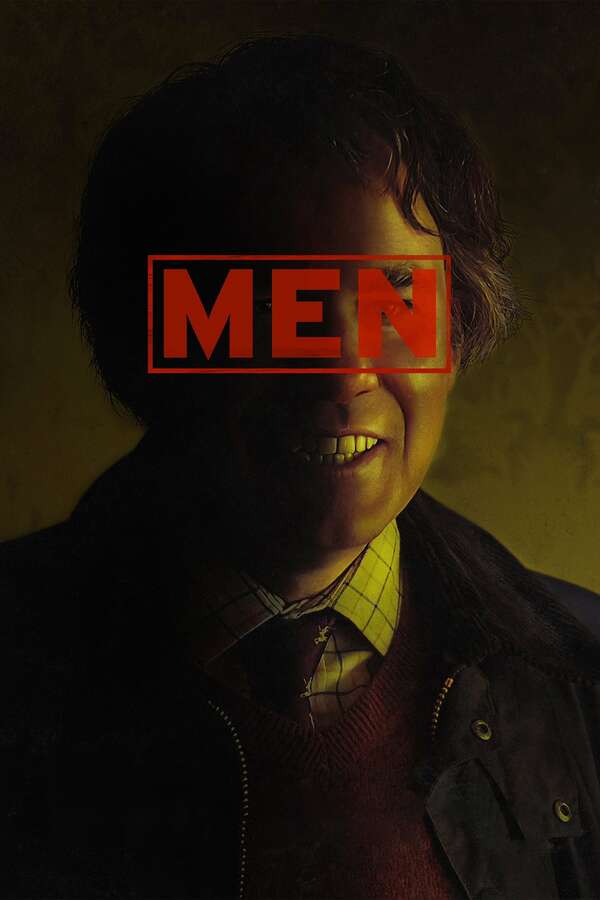
Men takes the idea of metaphorical, psychological horror to its logical conclusion in a way. That may be a strange way to put it, but the film is wonderfully confounding despite losing itself a bit by the end. Alex Garland continues his remarkable filmography with an exploration of the surreal and some truly unsettling body horror, this time a bit reminiscent of David Cronenberg. It won’t work for all viewers, but the freak show climax is certainly something you have never seen before. While not as grand and well focused as his earlier films Dredd, Ex Machina, and Annihilation, Men is frightfully original if nothing else and totally unpredictable, exciting to experience for a viewer who can appreciate a bizarre and unique work of art that doesn’t come along that often.
The basic premise is that a young woman, Harper Marlowe (played wonderfully by Irish newcomer Jessie Buckley, star of the similarly mind-bending Charlie Kaufman Netflix movie I’m Thinking of Ending Things) vacations in the English countryside following a traumatic fight and subsequent death of her husband, played by Paapa Essiedu. During her siesta, she gradually meets and encounters residents of the town, all men and even a boy, who literally have the same face (British Shakespearean actor Rory Kinnear from the Daniel Craig Bond films and The Imitation Game), and things slowly develop into a surreal nightmare, like a horror version of Kaufman’s existential drama Anomalisa actually, where the protagonist sees everyone having the same face and voice. Even the aforementioned child, innocently sitting on a doorstep who gradually becomes more hostile to Harper, and people in a nearby tavern just going about their business all share Kinnear’s face. The CGI effects aren’t perfect, but works to create an effect of everything feeling off. Harper also doesn’t seem to notice, which raises more questions about what exactly is going on here. The most frightening specter is of a leaf-covered “green man” who stalks her at various times, a real life pagan figure that has shown up across various cultures over thousands of years representing spring and rebirth, becoming very relevant themes as the movie progresses.
While Men will bring up different interpretations to viewers, a main aspect is exploring different ways a woman can feel uncomfortable, unsafe, or unsettled by male behavior. However these encounters are more psychological and perhaps even subjective to Harper, manifesting how lingering memories can affect your interpretation of the world and your environment, and also just adding to the threatening atmosphere; the movie really should have had a different title, because the main theme is more to do with trauma and healing from recognizing the flaws in loved ones and how you usually can’t change someone or blind yourself to their faults, serious as they may be and perhaps even justifying the end of a relationship. The basic message of men can be creeps and predators really is part of the horror experience, the ending indulging in a disorienting version of a slasher movie type finale, similar to The Shining too, with all manner of thrills and insane visuals that eventually get to the more relevant psychological manifestations of the aforementioned guilt, recognizing the deep flaws in a loved one, reckoning with grief, and finally healing from traumas.
Despite the lofty themes, Men is also just a fantastic suspenseful experience all around. The first third is almost the pacing of slow cinema like something from legendary Russian filmmaker Andrei Tarkovsky, with gorgeous nature cinematography, a wonderful film score, and really effective pacing and atmosphere. The movie seems more interested in provoking and leaving things up to interpretation than providing easy answers, but despite the insanity that it leads to, doesn’t just descend into nonsense and actually arrives at a nice ending that pretty much explains as much as it needed to. It will be a completely baffling watch for many casual filmgoers I'm sure, resembling something more like Antichrist or maybe Titane than a typical horror movie. Far from Garland's best perhaps, but Men is a bizarre and unique viewing experience worthwhile for those with a strong stomach and an open mind.
]]>
Well, this is different. Certainly not something expected from Joel Coen of all people, but I’m so glad he made it. Visually stunning, in black and white too, showcasing austere architecture and minimalist visuals mostly filmed on sound stages. The atmosphere is thick and foreboding, the tone resembling one of the art house horror films from the studio, A24. Denzel Washington plays the doomed king spectacularly in probably the best movie he’s ever been in. The actress and contortionist who plays all three witches, Kathryn Hunter, is also fantastic and creepy. Again, this adaptation of the famous play is not something one would expect with a Coen Brother, but he pulls it off in spectacular fashion and shows off a whole new side to his talents.
]]>
What can be said about Star Wars Episode VIII: The Last Jedi that hasn’t been said already? Perhaps the most controversial film in the saga, certainly of the sequel trilogy, which inspired a plethora of varied reactions to how subversive and seemingly disrespectful of the series it was, or how refreshing it is depending on who you ask. But the truth lies somewhere in the middle. While The Force Awakens is technically the best and most straightforward of the three, there are a few aspects of this one that are more interesting thematically. The less said about the ill-fated and scattershot Episode IX: The Rise of Skywalker, the better.
First off, The Last Jedi looks fantastic and is incredibly well made from a technical perspective. Just a cursory glance at any scene from each film in the trilogy makes it clear that this is the most artfully done and visually rich of them all. Rian Johnson is a high quality director, responsible for the excellent sci-fi thriller film Looper (starring Joseph Gordon-Levitt, Bruce Willis, Emily Blunt, and Jeff Daniels) and the low budget neo-noir murder mystery satire involving high schoolers, Brick (also starring Gordon-Levitt in an earlier role). This is perhaps his strongest from a pure filmmaking level, with picturesque shots, wonderfully choreographed action sequences, and vibrant imagery throughout. However…
Rian Johnson is also credited as the sole screenwriter, and the script is where the problems come in. Episode VII: The Force Awakens was a standard but highly effective starting point that echoes A New Hope maybe a bit too much, but with good focus on the fresh faced new characters meeting Han Solo, Princess (now General) Leia Organa, and then at the very end Luke Skywalker for a solid soft reboot to the new trilogy. The Last Jedi needed to take the story into a new direction and rely less on nostalgia, which is does, but almost to a fault. The film takes a more deconstructionist approach by all the characters being separated from each other and in a state of conflict or even confusion. The quality level of each story thread is also varied. This makes for a pretty noticeable split between an A-story, B-story, and C-story. While this kind of parallel plotlines isn’t rare in the Star Wars series, the B and C stories are far inferior to the A-story, the latter making for some of the best scenes and thematic ideas explored of the whole saga. The more frivolous and light side stories drag the movie down however.
To get the negatives out of the way, nearly every attempt at humor in The Last Jedi falls flat. The middle chapter of a sci-fi/fantasy trilogy is usually the darkest and sees the heroes at their low points. The Last Jedi certainly fits that criteria, but there are too many jokes throughout that don’t fit the subject matter of nearly every character generally feeling overwhelmed, frustrated, or even hopeless at their circumstances. This is also odd because Looper and Brick, along with the more recent Knives Out, use humor well in a subtler and more situational context. The Last Jedi’s low point concerns a mission assigned by Poe Dameron (Oscar Isaac) where former storm trooper Finn (John Boyega) and a new character, the mechanic Rose Tico (Kelly Marie Tran) journey to a casino planet with cartoonish aliens and eye-rolling attempts at wacky humor reminiscent of Star Wars Episode I: The Phantom Menace. This whole part ends up being completely inconsequential to the main conflict of the film and trilogy as a whole, an embarrassing and easily skippable sequence similar to something from the prequels.
There’s also a plot line where Poe clashes with Vice-iral Holdo (Laura Dern) concerning a plan to stop the planet-destroying First Order spaceships. Holdo takes control of the Resistance after Leia is temporarily indisposed after being injured from an attack by a First Order ship. This sequence of events ends with Poe, Leia, and everyone else except for Holdo escaping, who sacrifices herself to destroy the ships by flying into them at light speed. This comes across as a surprise maneuver, and she could have just told Poe about it in the first place to avoid their conflict. Some moments also come across as awkward, like the aforementioned attempts at humor, Leia saving herself with the Force by flying back into her ship after the explosion from the First Order attack propelled her into space, Rose’s explanation for why she crashes her ship into Finn’s at the end to stop his sacrifice by saying “Love will save us,” or some such nonsense, and Yoda in Force ghost form coming across a bit too goofy in an otherwise nice cameo scene with Luke.
The strong central story though concerns Jedi Knight Rey (Daisy Ridley) trying to continue her training in the ways of The Force with a now jaded and cynical Luke Skywalker in self-exile on a small island. She feels at a loss with what she must face in of Luke’s failed protégé and Han Solo and Leia’s son, Kylo Ren (Adam Driver) and his fascist First Order, a new incarnation of the evil Empire. She also communicates with Ren through the Force while on Luke’s island a number of times, and despite bitterly rejecting him at first due to having seen him murder Han Solo at the end of The Force Awakens, they gradually form a tentative bond and understand one another a bit. These scenes are some of the most interesting of the series, especially when they later meet in person while confronting Supreme Leader Snoke (Andy Serkis), another Emperor Palpatine type of evil ruler.
There’s a contemplative moment after Ren kills Snoke and he and Rey dispatch his guards that could have led to a new direction for the Star Wars series: He suggests that ideas of good and evil are irrelevant and they should team up to start a new society for the galaxy and leave the old ways behind. This could have been a really interesting direction to go in, but the movie chickens out as she rejects him because she sees he’s still evil or something along those lines. It turns out that this film really isn’t that subversive and blasphemous to the series, as in the third act, the scrappy band of rebels are facing down the butt-end of a doomsday super weapon led by the villain in his black mask (Ren), while the hero (Rey) must once again rise to the challenge, rescue everyone, and leave the area for them to fight another day. Not all that different for a Star Wars film!
There is more good than bad with The Last Jedi though. There’s a very satisfying climactic confrontation between Luke and Ren on the ground near the doomsday weapon. Before that, Luke shares a special moment with his sister Leia, where he kisses her forehead and gives her Han Solo’s dice that was always hanging in view on the Millennium Falcon cockpit in the original films, a brief and simple scene but honestly the most emotionally affecting one in this entire trilogy. Luke then goes to meet Ren where he taunts and stalls him so that Rey, Leia, and the others can escape. Ren tries in vain to kill him, eventually realizing that Luke is not physically there, and had used The Force to astral project himself to the location. Luke coyly vanishes on Ren and peacefully dies on his island. This is poetically visualized by him fading away and becoming one with The Force with twin suns in the background (like the ones above his home planet of Tatooine), and then his Jedi robe gently glides away. As mentioned before, lots of beautiful visuals in The Last Jedi. Hamill also gives probably the best performance of his entire career in The Last Jedi.
All this is well and good if it wasn’t the middle chapter of a trilogy. There’s actually a real air of finality to it, with Luke Skywalker dead along with Han Solo, Rey and Kylo Ren back to where they started as enemies, and Leia still leading the resistance with the other rebels, including Poe, Finn, and Rose, who didn’t do anything relevant to the main story. Nothing has really changed, and the following installment could take place two, five, or ten years later. It really doesn’t matter even though Snoke was killed, Rey was revealed to not have special parentage, and Luke had wanted the Jedi to end. Going in a new direction is the right idea after Force Awakens, but this result turned out to be a flawed way to do that. The Last Jedi is like anti-Star Wars, without even a lightsaber battle or much in the way of reverence for the world these characters are in. No wonder it’s so controversial with diehard fans. There’s nothing to look forward to or anticipate after what has taken place, which is a problem when part of a larger story. This was proven by the air of desperation and uninspired, frenetic nonsense that The Rise of Skywalker turned out to be, including retconning much of what this film was all about by not acknowledging the themes, making Rey have important parentage after all, showing a much more positive Luke in force ghost form, and totally sidelining Rose Tico.
While The Force Awakens did a good job reinvigorating the franchise and kicking this new trilogy off, The Rise of Skywalker was a generally convoluted and uninspired conclusion with just a few good moments here and there, mainly involving Kylo Ren. Both were directed and co-written by prolific writer/director/producer, and who some called the new Steven Spielberg, J.J. Abrams, with apparently no involvement by Rian Johnson. The problem with this trilogy wasn’t all the fault of Force Awakens or this one, but actually from the leaders of Disney/Lucasfilm/whatever not planning out a continuity between these three films in the first place. Johnson is not the one to blame for how the trilogy turned out. As just a sequel to The Force Awakens and not thinking about what comes next, The Last Jedi is generally very enjoyable to experience in the moment and feels like it even has a definitive ending.
The performances, directing, and some of the themes are the strengths, and many of the problems seem to have been fixable during the screenwriting process. What results is a very flawed but still good film that could have been great. It almost works as the real end to the franchise, and you could imagine how Rey and Kylo Ren later resolve their conflict in your head. Or find a good fan edit of The Rise of Skywalker that might save it, but that would be quite the challenge. If you know of one, drop a link in the comment section below.
64/100
]]>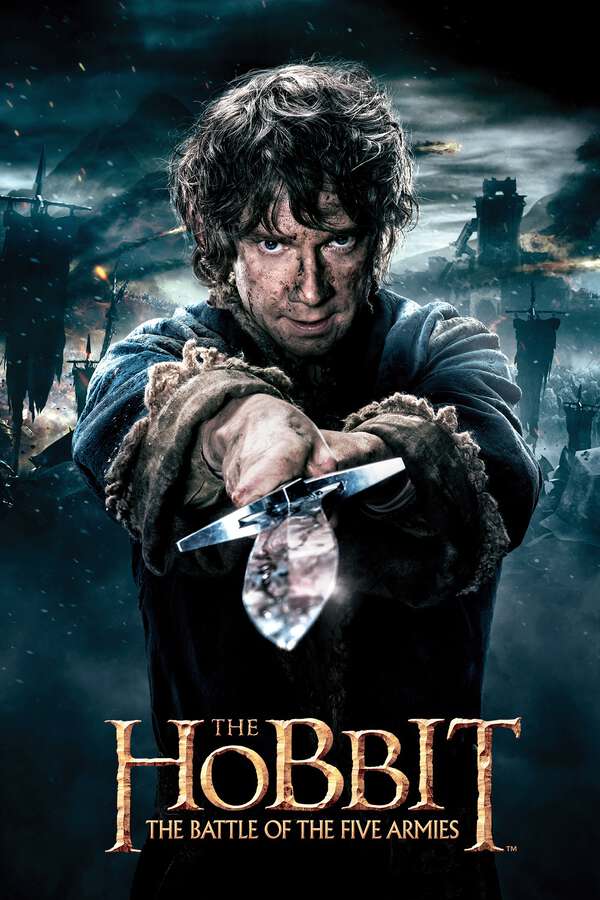
It all ends here. The final Middle-earth film (for now) concluded the Hobbit trilogy in a surprisingly efficient but still extravagant fantasy battle story running at only around two hours and fifteen minutes. However, there is an R-rated(!) extended version that features some hilariously over-the-top fighting scenes that add both more intensity and comedy to the second half. This version in particular is without a doubt worth experiencing as the highly entertaining and riotous piece of movie magic that it is. Both versions though tell the same story, beginning with the killing of the fearsome dragon Smaug (voice of Benedict Cumberbatch) after he burns down much of Lake-town, the efforts by elf leaders Elrond (Hugo Weaving) and Galadriel (Cate Blanchett) with wizard Saruman the White (Christopher Lee) rescuing Gandalf the Gray (Ian McKellen) to confront Sauron (also voiced by Cumberbatch) and the ghosts of the Nazgûl at his stronghold in Mirkwood, Dol Guldur, the five armies of men, animals, elves, dwarves, and orcs fighting for the riches in the dwarves’ homeland of the Lonely Mountain near Lake-town, and the aftermath of these events leading to the events of The Lord of the Rings. Despite the wonderful R-rated version of the film and all the strengths of the regular movie in general, there are still some issues, many lingering from the previous two installments, that keep it from reaching true greatness.
The Lord of the Rings are some of the finest movies ever made, my favorite in fact. Everything about them is perfect, and what Peter Jackson and everyone else involved accomplished is nothing short of amazing. The Hobbit trilogy is a different story. While the craft and love for the world of Middle-earth is still mostly there, a lot of problems arose too. There is no doubt among most viewers that the Hobbit book being adapted into an epic trilogy totaling more than seven hours altogether, nearly the length of TLotR trilogy, should have just been one or two films instead. Peter Jackson is not able to edit himself down as a director, which worked fine for TLotR, but this much simpler children’s tale needed to be smaller in scale and not try to match the gravitas of the real epic trilogy. Who knows how it would have turned out if Guillermo del Toro had completed his vision as the original writer/director, but I’m sure it would have at least been improved with the apparently planned increased time devoted to character development with Bilbo (Martin Freeman) interacting with the dwarves. He does get a bit lost in the shuffle of these grand events, when the whole book’s title refers to him! Thorin Oakenshield (Richard Armitage) sort of takes that spot in a way.
While all three films in this trilogy has its faults, each one is better and more enjoyable to watch than the last in my opinion. The Battle of Five Armies is the most straightforward and well-paced of the three, despite the opening Smaug confrontation at Lake-town that should have been the climax of the previous one, The Desolation of Smaug. There is also a scarcity of stupid cringe worthy scenes as well, with the only times in the theatrical version being the final scene with Tauriel (Evangeline Lilly) talking to Thranduil (Lee Pace) over Kili’s dead body after the battle is over, the ridiculous and over-the-top way that Bard the Bowman (Luke Evans) saves his family from an orc monster, Legolas (Orlando Bloom) stepping on falling concrete blocks from a collapsing bridge, and Alfrid Lickspittle (Ryan Gage) being shown cross-dressing and hoarding gold. If all these problems were fixed, the movie would have been completely solid as basically a feature-length big Hollywood adaptation of the book’s whole climax and aftermath.
The final 20 minutes or so brings back some of that emotional resonance from the LotR trilogy as it transitions to the beginning of The Fellowship of the Ring where Bilbo answers Gandalf at the door and the camera pans to a picture of the Middle-earth map. Even this graceful end note for the film, and trilogy as a whole, can’t wash away the imperfections and over-the-top nature of how this story was told. These prequel movies receive a fair amount of criticism, especially in comparison to TLofR, but not all of them are warranted. It is still far superior to the other major prequel trilogy, Star Wars from 1999-2005. This is the most digestible and successful one of the three overall, and the trilogy as a whole is still full of some wonderful scenes, particularly involving Gollum and Smaug. Peter Jackson and co.’s skill is still on display, even if not all of the magic and awe-inspiring storytelling from TLofR is there. There is also a fan edit condensing them all into one four-hour film, the ideal way to experience this story onscreen in my opinion.
77/100 for the standard edition, 100/100 for the extended edition :D
]]>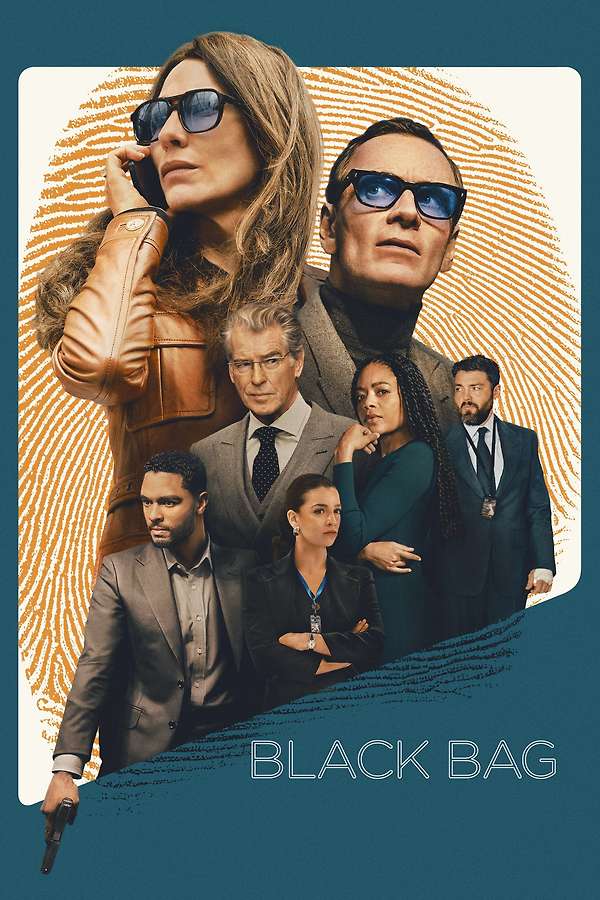
Watched on Wednesday April 2, 2025.
]]>
Watched on Sunday March 30, 2025.
]]>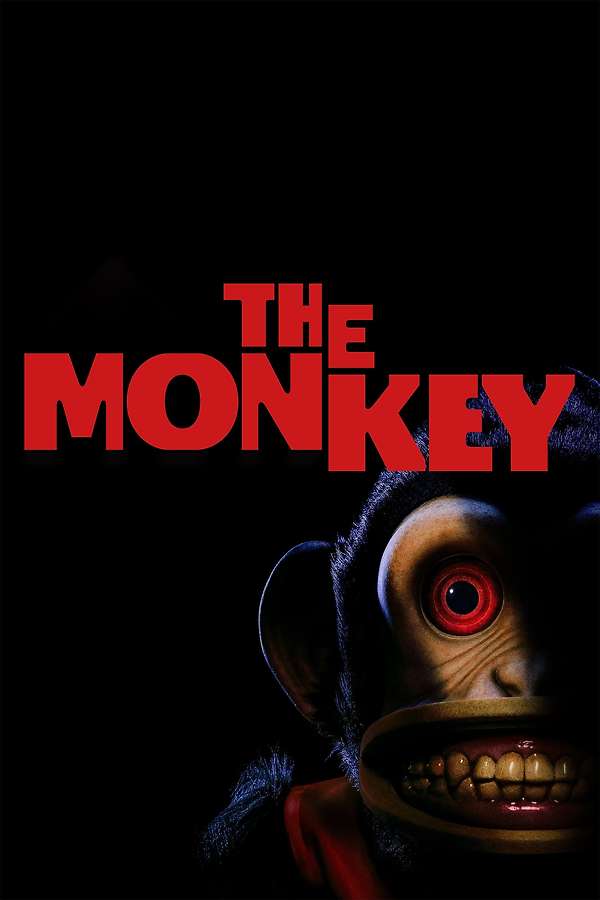
The Monkey is a new black comedy horror Stephen King adaptation from Oz Perkins, son of Anthony Perkins, who just a few months ago treated viewers to one of the best horror films of the decade, Longlegs. To get another work of art from him so soon after that was an exciting prospect, but The Monkey is very different from his usual slow-burn movies of creeping dread and psychological horror, instead being more normally paced and characters rattling off snappy dialogue in between curious attempts at family drama and some over-the-top Final Destination-esque elaborate death scenes caused by a haunted monkey toy that the characters just can’t by any means seem to get rid of or destroy. Perkins must have wanted a break from his usual style and make something more immediate, visceral, and humorous it seems as both writer/adapter and director. To go for such a radical departure from his usual wheelhouse that he’s proven to be spectacular in is commendable, but despite some positive qualities, The Monkey is far from excellent and feels tonally off and even a bit slapped together at times.
The plot is simple as can be, centering on twin brothers Hal and Bill who find themselves under the disturbing eye of this toy monkey their father found somewhere from a work trip or something (that’s all the explanation we’re offered on its origin; even the classic Simpsons Treehouse of Horror III segment "Clown Without Pity” about a killer Krusty the Klown doll that the family has to stop has more of a backstory for it, even having a scene or two that this film appears to borrow from), and a series of deaths plague their childhoods, then again in their adult lives where they must contend with this evil once and for all to be rid of its curse. That’s essentially it, about as familiar and derivative a set-up as anything released by the creatively bankrupt modern Hollywood, but also including a bit of something different despite that. Along with the ridiculous kills and unrealistic, acidic verbal barbs that characters often trade with each other are somewhat confusing moments at what appears to be an honest effort at showing a reckoning with trauma and loss impacting children and how that can carry into adulthood, along with how our protagonist Hal learns to be a real father. This ing attempt at injecting some depth into an absurdist violent comedy about a cursed monkey toy that causes gruesome deaths doesn’t exactly fit, and stands out as subpar efforts for themes also compared to the highly successfully thematic, psychological horror of Longlegs, which while not a comedy at all had some absurd moments too.
The actors are okay but also seem to kind of phone in their performances. Theo James as the adult twins is good though and proves a very solid performer. Also undermining the impact of the plot is how a lot of the characters die without much time spent with them and then things pretty quickly move on to the next thing. Elijah Wood is wasted in a cameo, as is Tatiana Maslany’s role as the mother. With a lack of much inspired witty dialogue or strong themes to be found, The Monkey sustains itself with some creative death scenes not unlike what a Final Destination spinoff could be. Perkins seems to just be having fun with this one to juxtapose his more grim, serious, intense previous work that he clearly knows how to excel at. He maybe could have benefited from a co-writer who knows how to do witty dialogue and comedic setups to strengthen those elements of The Monkey, but it’s far from a flop or anything. One moment at exactly the halfway point made me burst out laughing louder than anything else I can in quite a while, so that’s something. Even if a film involving producer James Wan, Stephen King, and Oz Perkins feels like it should have a bit more to it, The Monkey is still a mildly enjoyable diversion with an unhinged, gleeful sense of stupidity and some laugh-out-loud moments here and there.
]]>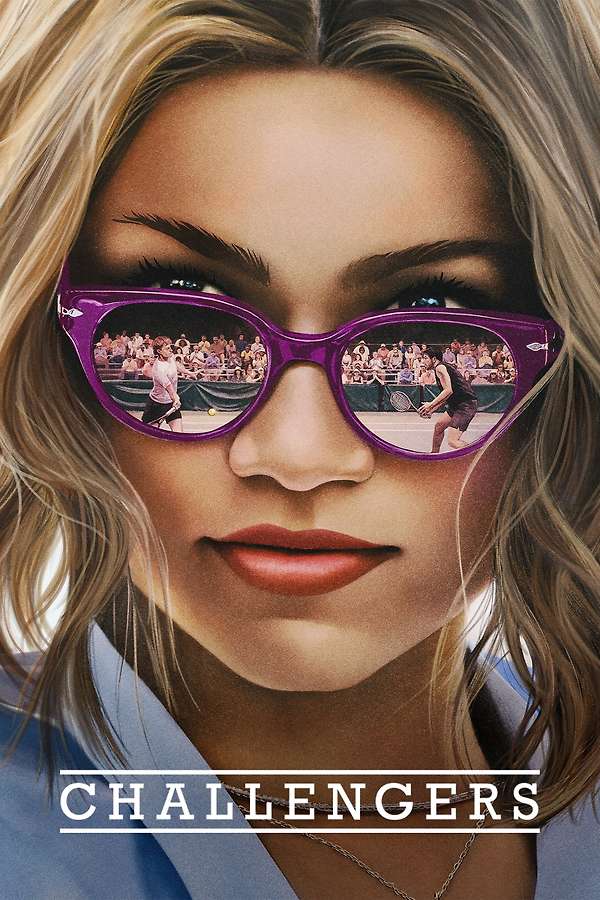
Watched on Monday March 24, 2025.
]]>
Watched on Saturday March 15, 2025.
]]>
Watched on Tuesday February 25, 2025.
]]>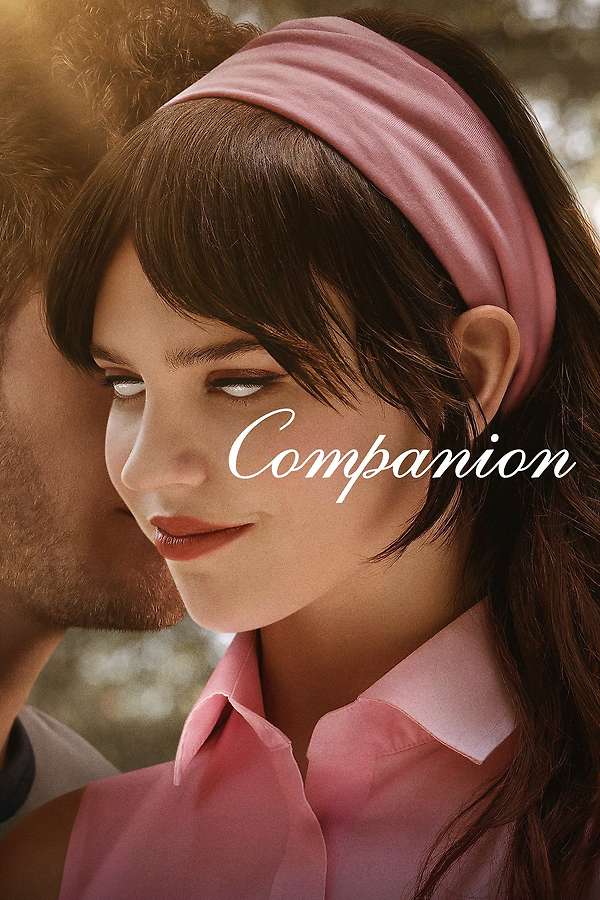
Watched on Thursday February 20, 2025.
]]>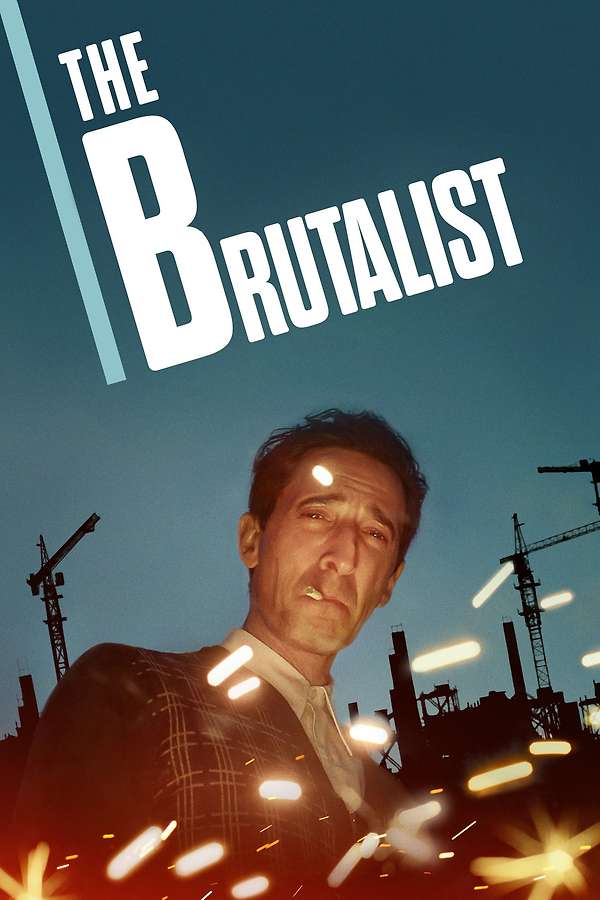
Watched on Tuesday February 18, 2025.
]]>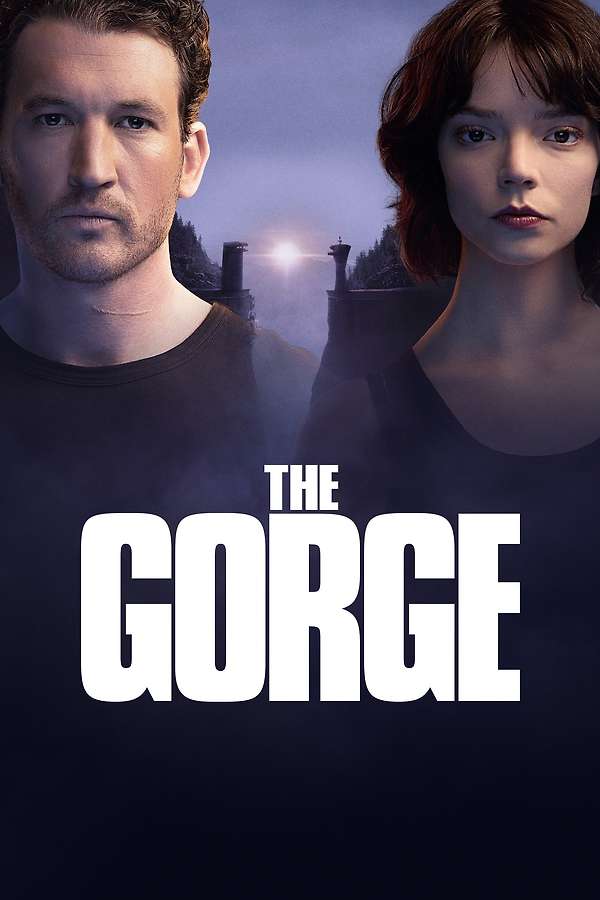
Watched on Saturday February 15, 2025.
]]>
Watched on Monday February 17, 2025.
]]>
Watched on Tuesday February 11, 2025.
]]>Maybe my favorite aesthetic in art is a balance of the beautiful and grotesque, with a litany of movies and a couple shows from the past 10 years I’ve seen with that style to it. I love artsy horror and fantasy that has stylish, lush visuals and beautiful imagery to contrast the dark fantasy, horror, gothic atmosphere, etc. The shorts/docs represent their series. Red Dragon being season 3 of Hannibal and the other being 1-2.
- The Lord of the Rings: The Return of the King
- The Lord of the Rings: The Fellowship of the Ring
- The Seventh Seal
- Mad Max: Fury Road
- The Green Knight
- The Northman
- Game of Thrones: The Story So Far
- The Witch
- Annihilation
- Twin Peaks: The Return
...plus 48 more. View the full list on Letterboxd.
]]>This might only make sense to me, but I’ve always had a strong feeling identifying movies like this. Almost all of them are from the past 30 years for whatever reason. Often related to crime or breaking the law involving morally questionable, everyday people getting into wacky situations, but not really in a cartoonish way. Highlights the chaos and absurdity of our world and of humanity. Usually comedic, well crafted/written, and very rewatchable. The directors I tagged seem to really like making movies like this. The video game equivalent for example would be Grand Theft Auto V. The Fargo series, Breaking Bad, and Better Call Saul are represented on this list by a short film or related video for each one. Season 2 right above 1 for the Fargo series, with the movie just above them.
- Pulp Fiction
- No Country for Old Men
- Eternal Sunshine of the Spotless Mind
- Rushmore
- Birdman or (The Unexpected Virtue of Ignorance)
- Inglourious Basterds
- Parasite
- The Departed
- No Half Measures: Creating the Final Season of Breaking Bad
- The Royal Tenenbaums
...plus 163 more. View the full list on Letterboxd.
]]>These are films that blur the lines between gothic, often psychological drama and supernatural horror, engaging the imagination with elements of mystery, the supernatural, occult, gothic atmosphere, rich ghost tales, and/or general mythology to the story. Many of my favorites progress like character-driven supernatural dramas with horror and fantasy elements. There's a wide variety, but often low or mid-budget, well made movies, many from recent years. This version of Doctor Sleep is the extended version, a work of art. I love the top 68.
- The Prestige
- Game of Thrones: The Story So Far
- The Seventh Seal
- The Green Knight
- The Northman
- Donnie Darko
- The Witch
- Twin Peaks: The Return
- The Exorcist
- The Shining
...plus 246 more. View the full list on Letterboxd.
]]>Updated through the decade. Eligibility is a feature-length movie with a wide release date in the US in 2020 or later, through streaming or otherwise. I love the top 27. Happy for recommendations!
- The Green Knight
- The Northman
- Dune
- Oppenheimer
- The Holdovers
- Dune: Part Two
- Nosferatu
- Tenet
- The Tragedy of Macbeth
- The Last Duel
...plus 90 more. View the full list on Letterboxd.
]]>Pretty much any movie that messed with your head and/or makes you go wtf was that after it ends, in a mostly not bad way. Didn’t include animated movies because too many of them qualify when I thought about it. I love the top 83. Also I realized this is a Charlie Kaufman ranked list too, as all of his work is here haha
- The Prestige
- Psycho
- Eternal Sunshine of the Spotless Mind
- Inception
- Blade Runner 2049
- Mad Max: Fury Road
- The Green Knight
- Birdman or (The Unexpected Virtue of Ignorance)
- Blade Runner
- Parasite
...plus 304 more. View the full list on Letterboxd.
]]>A24 is a prolific film distribution company founded in 2012 with the principle of releasing “movies [made] from a distinctive point of view.” They’ve dropped many modest budgeted art-house films with great cinematography often in the realm of offbeat family dramas and cerebral genre films that emphasize naturalism and tend to divide audiences. This list is meant to rank modern auteurist films that could be released under their moniker alongside all the A24 films I’ve seen, from favorite to least favorite. I love the top 72.
- No Country for Old Men
- Her
- Blade Runner 2049
- Whiplash
- The Green Knight
- Birdman or (The Unexpected Virtue of Ignorance)
- Parasite
- The Northman
- The Witch
- Annihilation
...plus 351 more. View the full list on Letterboxd.
]]>I've loved monster movies since I was a child. There are plenty of bad and low budget ones, which I did not include. A mix of more horror centric movies and light-hearted stuff that’s life-action or 3-D computer generated. I love the top 44.
- The Lord of the Rings: The Return of the King
- The Lord of the Rings: The Fellowship of the Ring
- The Empire Strikes Back
- The Green Knight
- The Thing
- Annihilation
- The Lord of the Rings: The Two Towers
- Arrival
- Alien
- Harry Potter and the Prisoner of Azkaban
...plus 198 more. View the full list on Letterboxd.
]]>These are gateway horror or fantasy/sci-fi movies with scary moments ranked by my personal preference. The purpose is to introduce children to the genre by being moderately scary for that age group, in the PG/PG-13 range.
- The Lord of the Rings: The Return of the King
- The Lord of the Rings: The Fellowship of the Ring
- The Empire Strikes Back
- Raiders of the Lost Ark
- Donnie Darko
- The Lord of the Rings: The Two Towers
- Star Wars
- Harry Potter and the Prisoner of Azkaban
- Big Fish
- Harry Potter and the Deathly Hallows: Part 2
...plus 244 more. View the full list on Letterboxd.
]]>Like many people, I love a good action film. The 2010s brought on a slew of female led ones coming off the beginning of that start in the 2000s, the best being Kill Bill, Death Proof, Crouching Tiger, Hidden Dragon, V for Vendetta, and The Descent. Like almost any type of movie trend though, there is a wide gap in quality across them, which has gotten more obvious to me as the years go by. It’s clear, at least to me, whether a blockbuster kind of movie actually has an interesting story to tell and characters with some depth to them, or it’s just an agenda-driven POS with no soul or originality to it.
I wanted to rank all my favorite female driven action films of the past 10 or so years above the worst ones. The dividing line starts at Ghost in the Shell, with that and the 8 movies below it being mediocre, and everything after are the real stinkers. I know there are other terrible ones I haven’t seen, I suspect Lucy, the live-action Mulan, and The 355 for example, but I think this list proves that there are more good than bad with these types of movies. But the fact that even the clearly terrible ones get good reviews now proves an unnecessary bias toward these, perhaps the reviewers wanting to look like they the idea. But there’s nothing wrong with calling a bad movie bad, regardless of it starring men or women. That’s actual equality, isn’t it!
- Mad Max: Fury Road
- Annihilation
- Prometheus
- Suspiria
- Gravity
- Gone Girl
- 10 Cloverfield Lane
- Us
- Black Swan
- The Girl with the Dragon Tattoo
...plus 80 more. View the full list on Letterboxd.
]]>In other words, the coolest movies ever made. Meant to be a comprehensive list, and I did both these sub-genres together since they have a lot of overlap. Westworld: The Story So far is representative of just season 3, which has no western elements and pure cyberpunk/tech-noir.
- Blade Runner 2049
- Blade Runner
- Alien
- The Matrix
- The Terminator
- Prometheus
- Terminator 2: Judgment Day
- Ex Machina
- Aliens
- Looper
...plus 83 more. View the full list on Letterboxd.
]]>Movies that make me think of Quentin Tarantino's filmography, with some in other genres besides crime drama. Could be seen as a list to recommend for fans who want more in the vein of his films: bold, thrilling, violent, confrontational, well made/written, smart, sometimes funny, always entertaining. Aka essentially a list of the most badass movies made in the past 30 years, ranked with his included. These entries were released while Tarantino has been active as a director, as this isn't meant to be a list of films that influenced him, or even necessarily influenced by him. It felt weird to not have Goodfellas on here with Scorsese's recent others, so that's the exception. This version of the Hateful Eight is the extended one. I love the top 55.
- Pulp Fiction
- The Dark Knight
- No Country for Old Men
- There Will Be Blood
- Mad Max: Fury Road
- Inglourious Basterds
- The Departed
- Dunkirk
- Fight Club
- City of God
...plus 84 more. View the full list on Letterboxd.
]]>One of the very best types of film. Some inevitable overlap with other genres but meant to be comprehensive. I love the top 75. The Hannibal entries are meant to represent seasons 1-2 and 3.
...plus 260 more. View the full list on Letterboxd.
]]>A few movies technically take place before or later than the medieval time period of 400-1400, but I feel they essentially have the right imagery and setting to belong. I love the top 20.
- The Lord of the Rings: The Return of the King
- The Lord of the Rings: The Fellowship of the Ring
- The Seventh Seal
- The Green Knight
- Game of Thrones: The Story So Far
- The Northman
- The Witch
- Game of Thrones The IMAX Experience
- The Lord of the Rings: The Two Towers
- Gladiator
...plus 97 more. View the full list on Letterboxd.
]]>Criteria is wide release in the United States from 2010-2019. If my low number of 5/5 rated movies seem selective, there's another way to think about it: all movies I've rated at least a 4/5 and have hearted (all 100 movies on this list) are perfect scores by someone like Roger Ebert's rating system, where 1 is the lowest and 4 is the highest. The entries for The Hateful Eight, Midsommar, and Doctor Sleep are the extended 3+ hour director's cuts. Some honorable mentions are Side Effects, 13 Assassins, Ingrid Goes West, Short Term 12, The Town, and American Animals.
- Her
- Inception
- Blade Runner 2049
- Mad Max: Fury Road
- Whiplash
- Birdman or (The Unexpected Virtue of Ignorance)
- Parasite
- Dunkirk
- The Witch
- Annihilation
...plus 90 more. View the full list on Letterboxd.
]]>The MCU movies ranked from best to worst alongside all the other Marvel movies I’ve seen! I thought I'd rank the 3 phases of these movies here too, but they kind of even out I realized. In of color scheme, visual style, and CGI, Phase 3 is definitely the best. Marvel is the only film franchise doing a cinematic universe right, with most all of their movies being at least good. I love the top 12. The bottom 30 do not work for me.
- Logan
- Captain America: The Winter Soldier
- Avengers: Infinity War
- Spider-Man 2
- Avengers: Endgame
- The Avengers
- X-Men: Days of Future Past
- Guardians of the Galaxy Vol. 2
- X2
- Guardians of the Galaxy
...plus 66 more. View the full list on Letterboxd.
]]>The phrase “popcorn movie” is meant to identify a crowd-pleasing type of movie made for a wide audience that you can sit back and enjoy without having to think too hard. It’s used to excuse bad movies too though, and justify bottom of the barrel types like the Transformers series and most everything by Roland Emmerich. I’m focusing on truly great live-action, English language, usually light-hearted movies in the action, mystery, and fantasy/sci-fi genres since 2008, with Iron Man, The Dark Knight, and Cloverfield marking the end of many high quality 2000s ones (but the launch of the MCU) and the growing scarcity of genuinely great ones into the 2010s, with the 2020s being a pretty big dry spell so far, aside from 2022 which was solid. These types of movies really began with Spielberg and Lucas, and I grew up on them and love them, but there’s all this junk out there too. These are the great ones in my opinion in order of release date.
- Beetlejuice Beetlejuice
- Furiosa: A Mad Max Saga
- Dune: Part Two
- Oppenheimer
- Mission: Impossible – Dead Reckoning
- Godzilla Minus One
- Extraction 2
- Guardians of the Galaxy Vol. 3
- Guy Ritchie's The Covenant
- The Last Voyage of the Demeter
...plus 110 more. View the full list on Letterboxd.
]]>I grew up with Pixar and classic Disney films as many others of my generation did. The best era for Pixar was for sure the 2000s, mainly 2001-2004, and the 2020s is for sure the low point as it is for pretty much everything. If it’s not here I haven’t seen it.
- Finding Nemo
- The Incredibles
- Monsters, Inc.
- Ratatouille
- WALL·E
- Toy Story
- Up
- Inside Out
- Finding Dory
- Toy Story 3
...plus 12 more. View the full list on Letterboxd.
]]>These are perfect (for what they are) movies, mainly action, horror, and comedies that hit big and resulted in unnecessary sequels, remakes, reboots, and franchises with only a few exceptions. Many of these were great one-time concepts that worked as stand-alone movies and should’ve stayed that way. I added Terminator 2, Gremlins 2, Exorcist III, Aliens, Prey, and Prometheus as they’re exceptions that follow up the originals with great new directions. Halloween (2018) and Jurassic World were solid reboots, but nothing after those were needed. I don’t think all the sequels/reboots are bad, some may even be decent (I actually like a lot of Alien: Covenant). I’m assuming Gremlins will be remade at some point.
- The Exorcist
- Alien
- The Matrix
- The Terminator
- Prometheus
- Terminator 2: Judgment Day
- Jaws
- Jurassic Park
- Halloween
- The Omen
...plus 36 more. View the full list on Letterboxd.
]]>Ranked by personal preference. If only having 45 movies with a perfect score of 5/5 seems selective, there's another way to think about it: all movies I've rated at least a 4/5 and have hearted are perfect scores by someone like Roger Ebert's rating system, where 1 is the lowest and 4 is the highest. I have a list of favorite movies from just the 2010s and of the 2020s on my profile too.
- The Lord of the Rings: The Return of the King
- The Shawshank Redemption
- Pulp Fiction
- The Prestige
- The Lord of the Rings: The Fellowship of the Ring
- The Godfather Part II
- The Seventh Seal
- Psycho
- The Dark Knight
- No Country for Old Men
...plus 90 more. View the full list on Letterboxd.
]]>A companion list with my Tarantino-esque one showcasing movies that were influenced by Christopher Nolan’s filmography, my favorite director (Tarantino is my second, or maybe third cause Hitchcock). With Goodfellas having been a big influence on Tarantino in my opinion, I think a case could be made for Heat being Nolan’s biggest influence, or most obvious, so I included it here. Nearly everything else is from after Memento, his breakthrough. These are often mind-bending, self-serious action/sci-fi movies and psychological thrillers for the most part. I’m generally not a fan of how superhero movies tried to be like the Dark Knight because they usually failed.
- The Prestige
- The Dark Knight
- Inception
- Blade Runner 2049
- Dunkirk
- The Dark Knight Rises
- Heat
- Interstellar
- Casino Royale
- The Bourne Ultimatum
...plus 44 more. View the full list on Letterboxd.
]]>These are live-action DC superhero films I’ve watched related in some way to the Justice League characters. I love the top 5 and quite like the next 5 below that. Bottom 12 are not good.
- The Dark Knight
- The Dark Knight Rises
- Batman Begins
- The Batman
- Joker
- Batman
- Superman
- Wonder Woman
- Batman Returns
- The Suicide Squad
...plus 18 more. View the full list on Letterboxd.
]]>My favorite horror franchise aside from the embarassing and misguided 2000s installments. Full disclosure that I haven't seen all of the bottom 4 from beginning to end, but I've seen enough! I hope they don't make any more lol
- Halloween
- Halloween
- Halloween III: Season of the Witch
- Halloween II
- Halloween 4: The Return of Michael Myers
- Halloween Ends
- Halloween H20: 20 Years Later
- Halloween Kills
- Halloween 5: The Revenge of Michael Myers
- Halloween: The Curse of Michael Myers
...plus 3 more. View the full list on Letterboxd.
]]>Criteria is having made at least three excellent feature length films (with a few exceptions, especially if they’re young) that display the highest achievements of filmmaking skills. Not ranked, but in order of the director’s birth year. The listed movie is in my opinion their best or defining work. Being great writers boosts their standing and might push them higher on the list. Honorable mentions are Bennett Miller, Robert Aldrich, Asghar Farhadi, Wong Kar-wai, Rob Reiner, John McTiernan, J. J. Abrams, Ben Affleck, Joe Wright, John Hillcoat, Steve McQueen, and Don Siegel.
- Midsommar
- Whiplash
- Lady Bird
- The Northman
- The Green Knight
- The Raid 2
- Us
- Doctor Sleep
- Mandy
- The Blackcoat's Daughter
...plus 90 more. View the full list on Letterboxd.
]]>I can’t think of a more consistent horror director than John Carpenter. His filmography from the mid 70s until the late 80s is pretty incredible, with many of the films being underrated and ahead of their time. The Thing is my favorite horror film.
- The Thing
- In the Mouth of Madness
- Halloween
- Escape from New York
- Prince of Darkness
- The Fog
- They Live
- Starman
- Big Trouble in Little China
- Assault on Precinct 13
...plus 8 more. View the full list on Letterboxd.
]]>